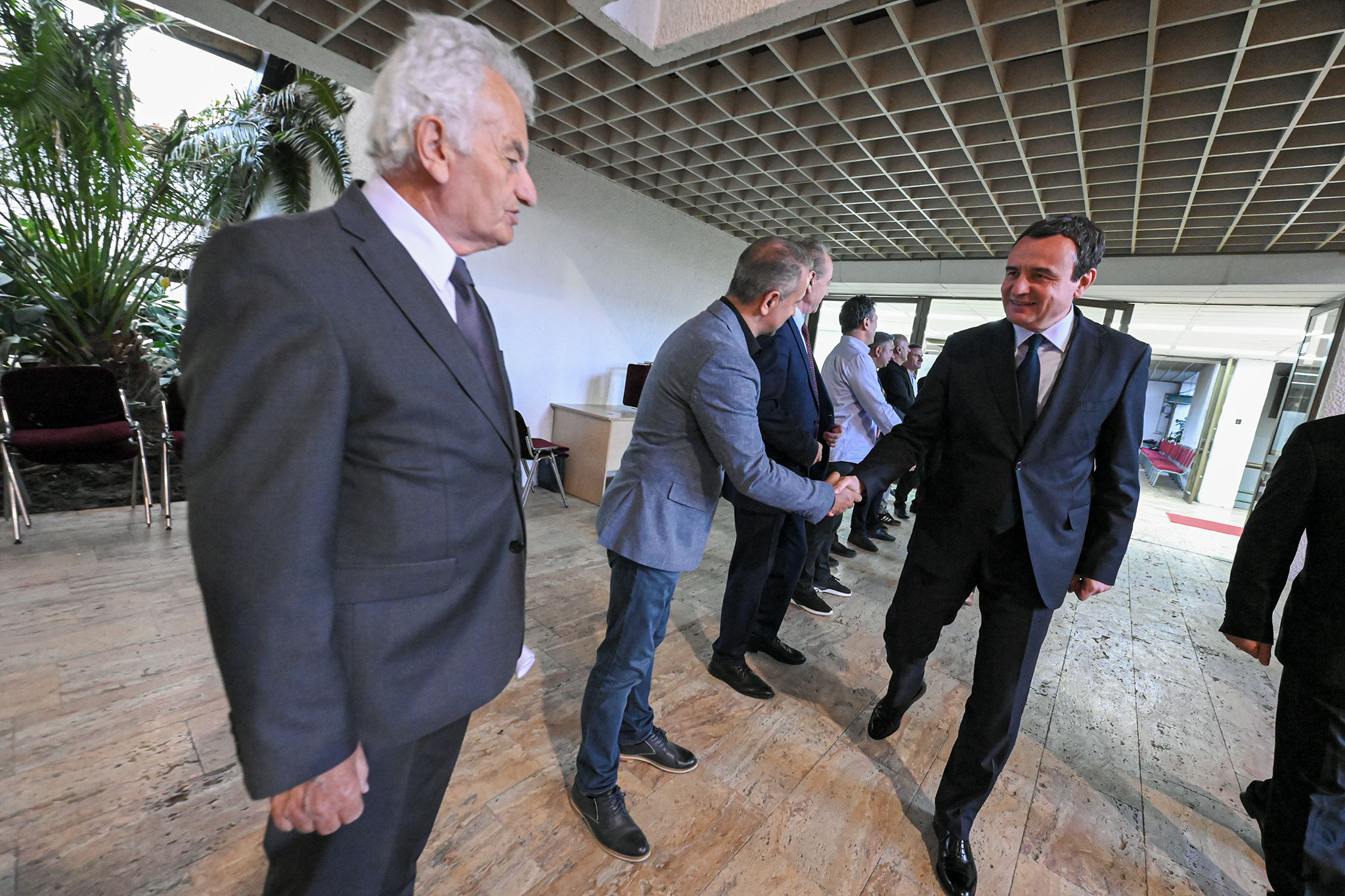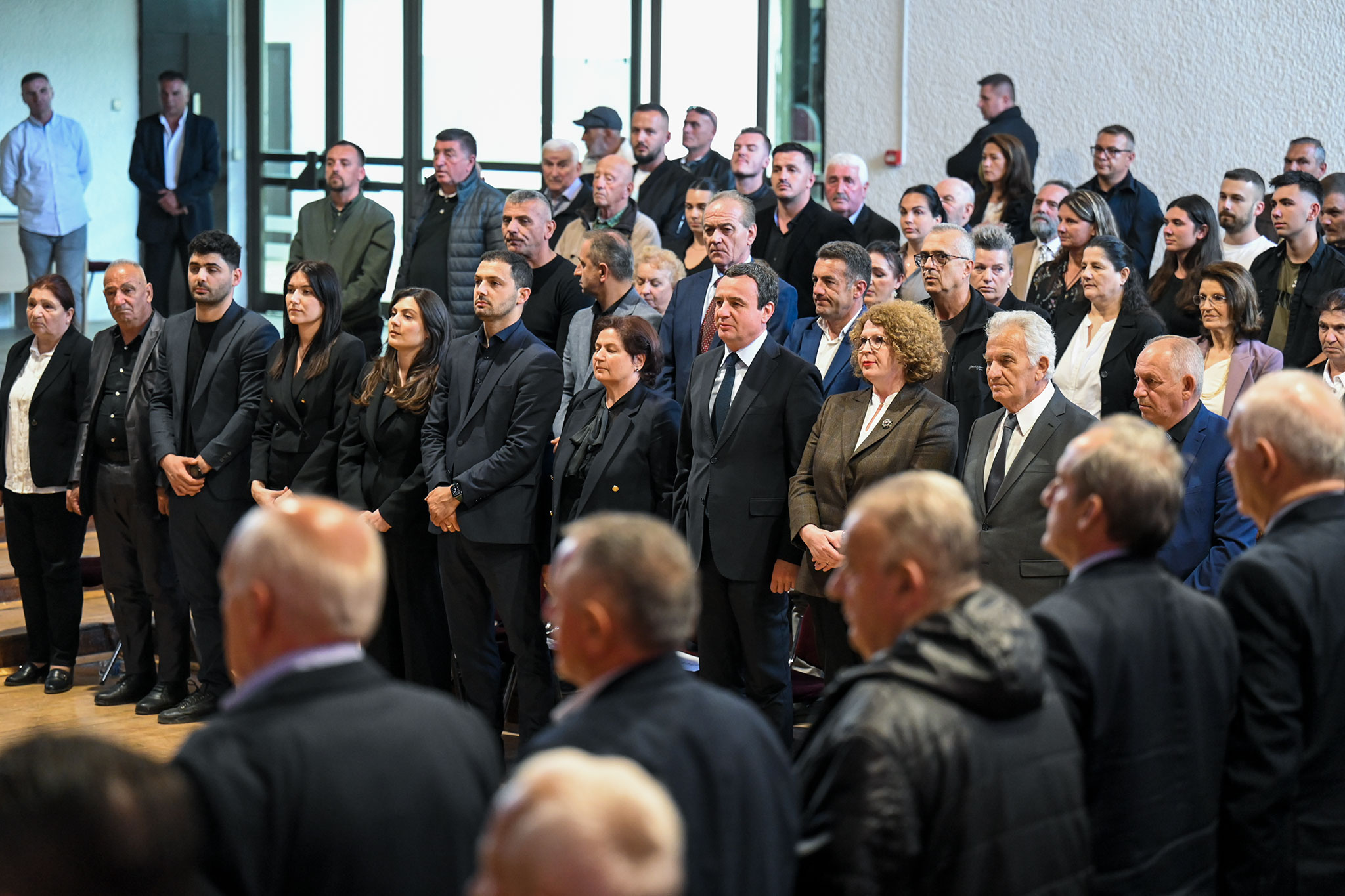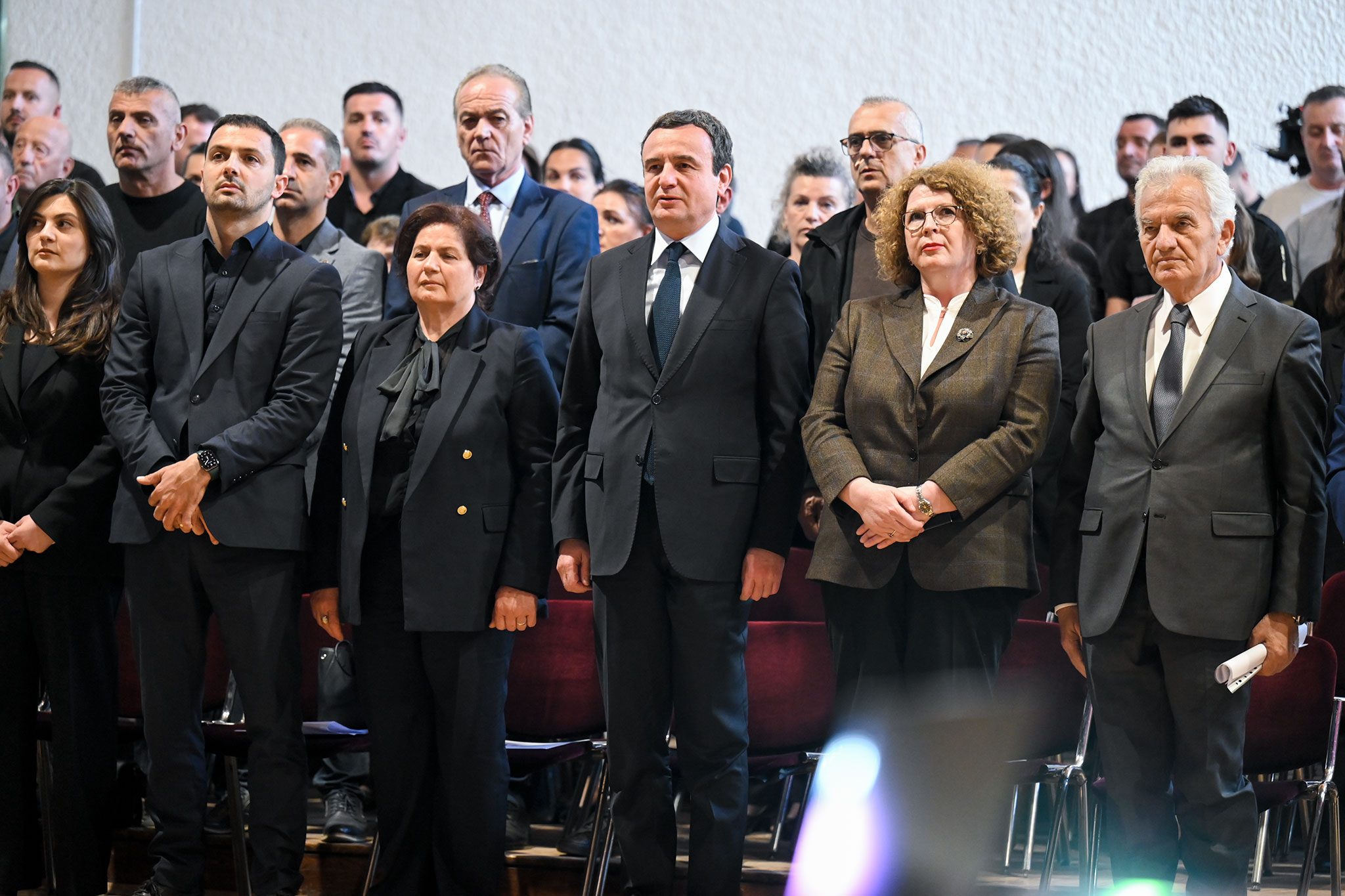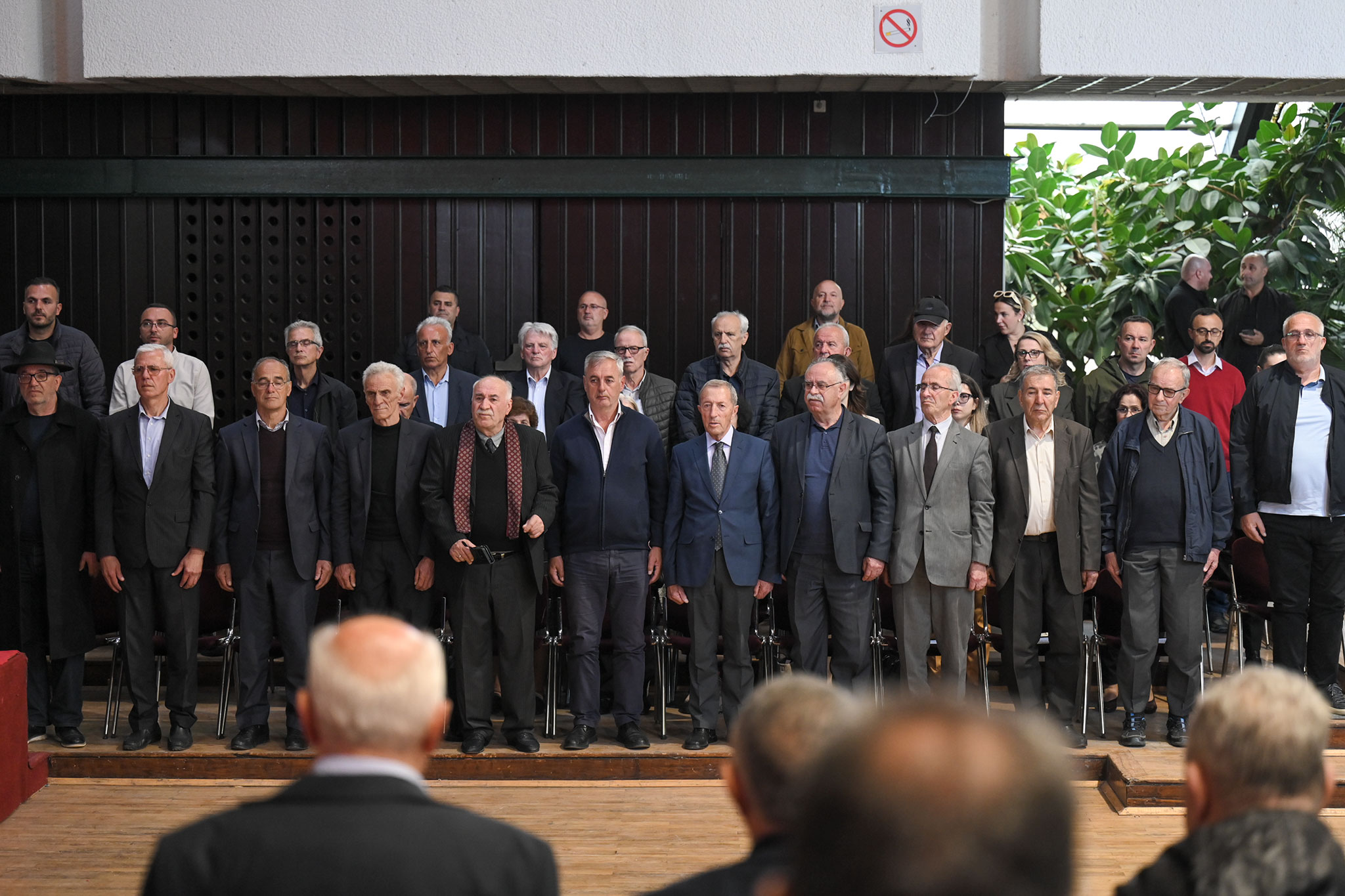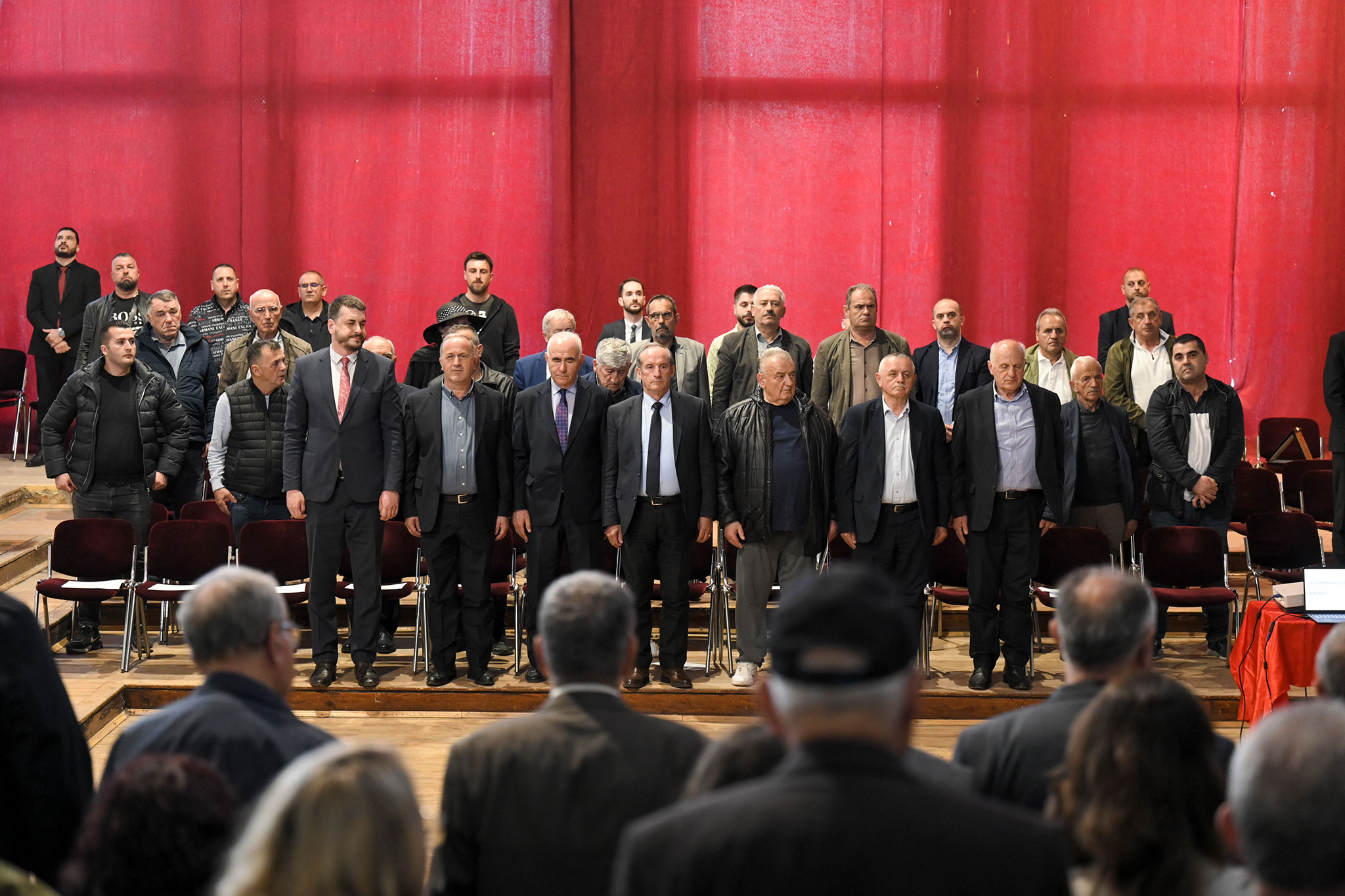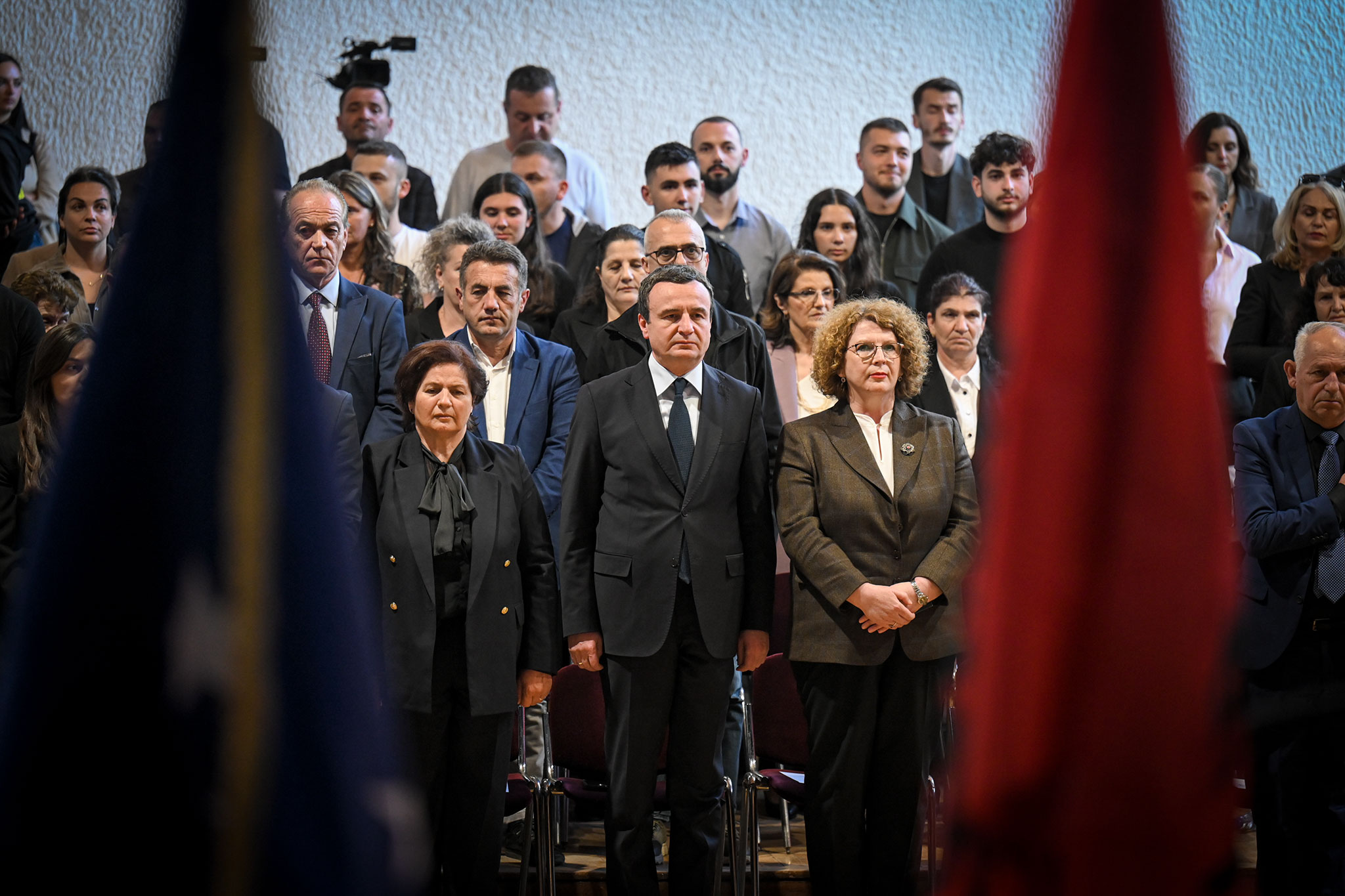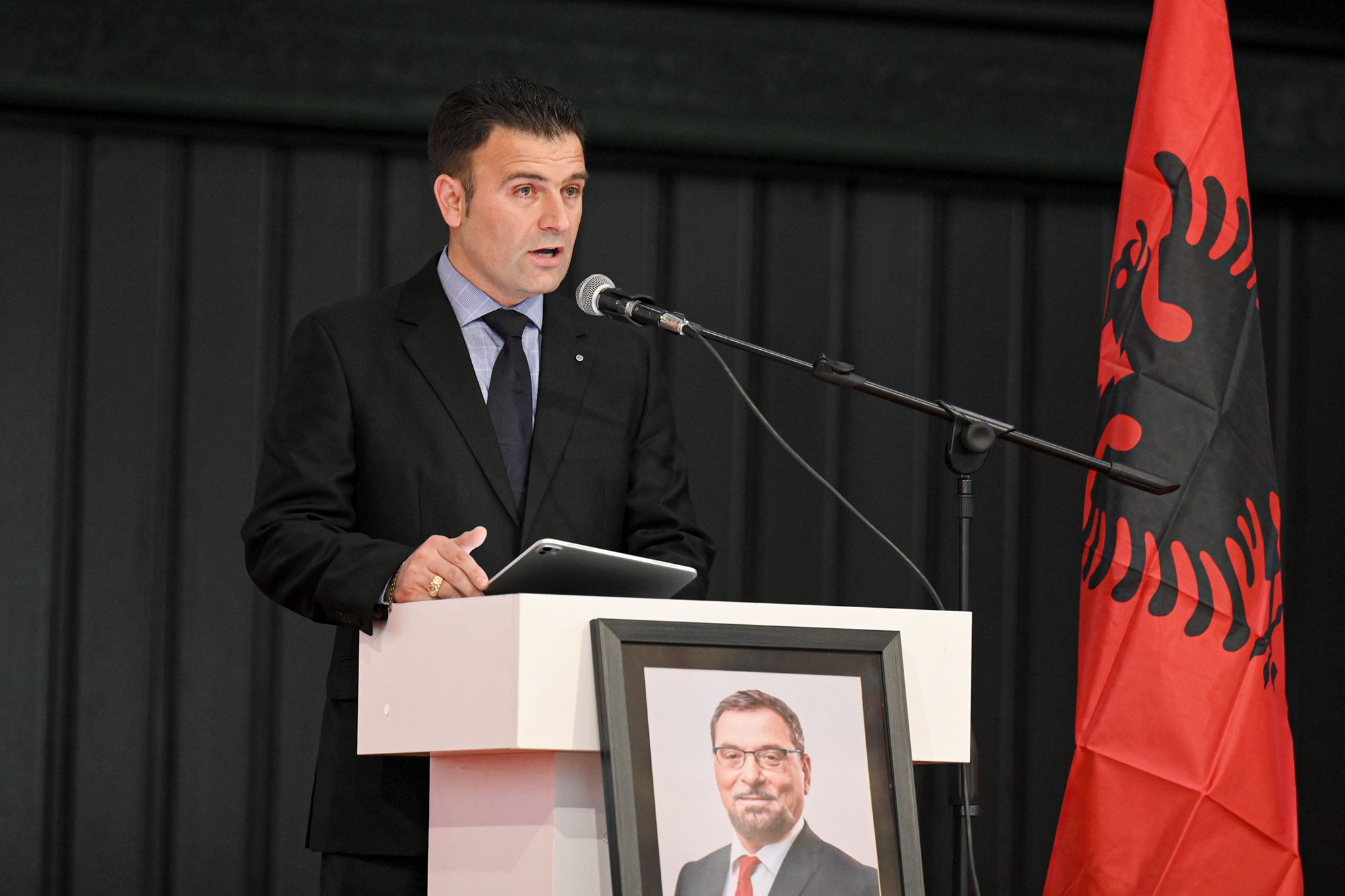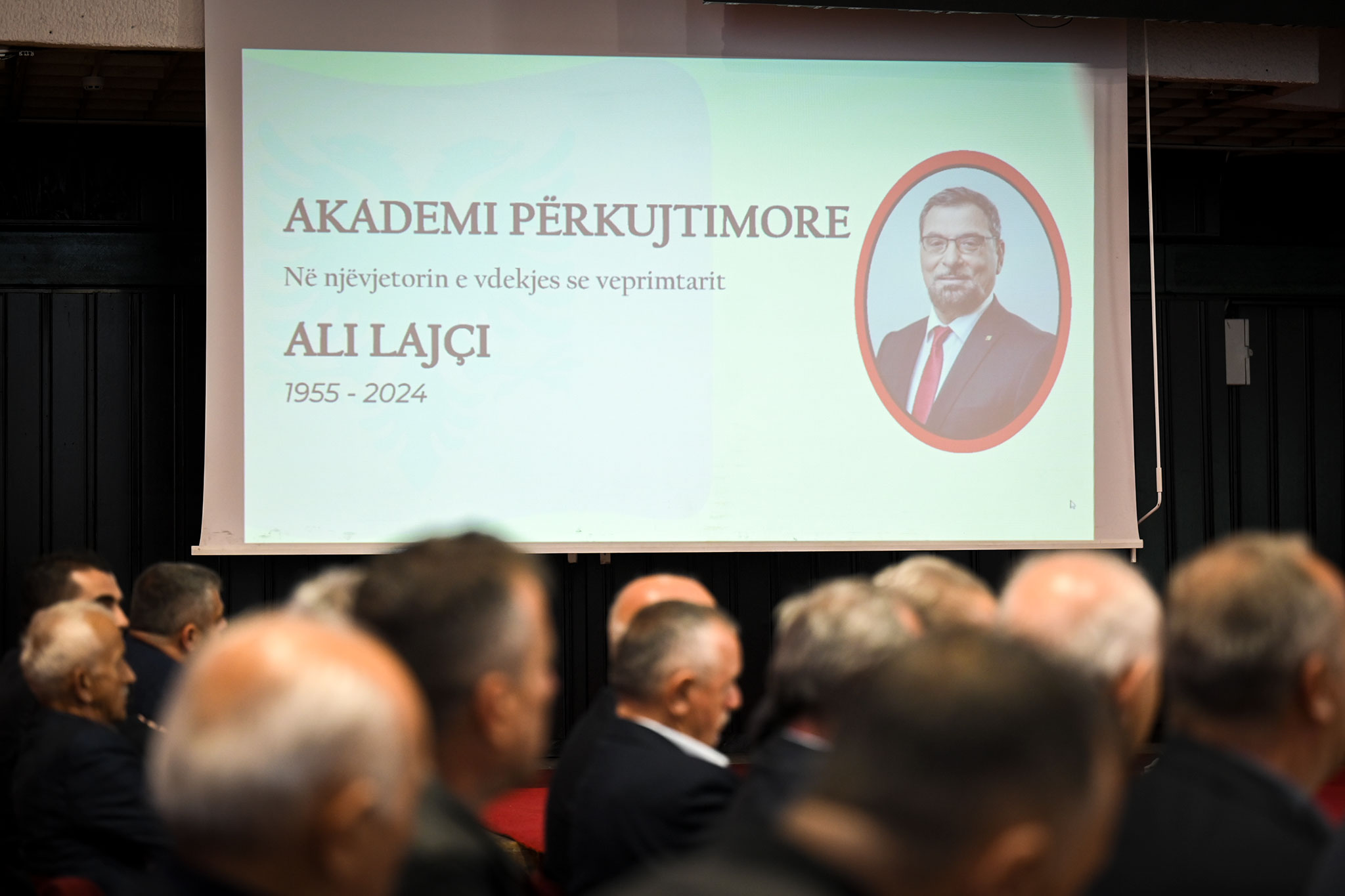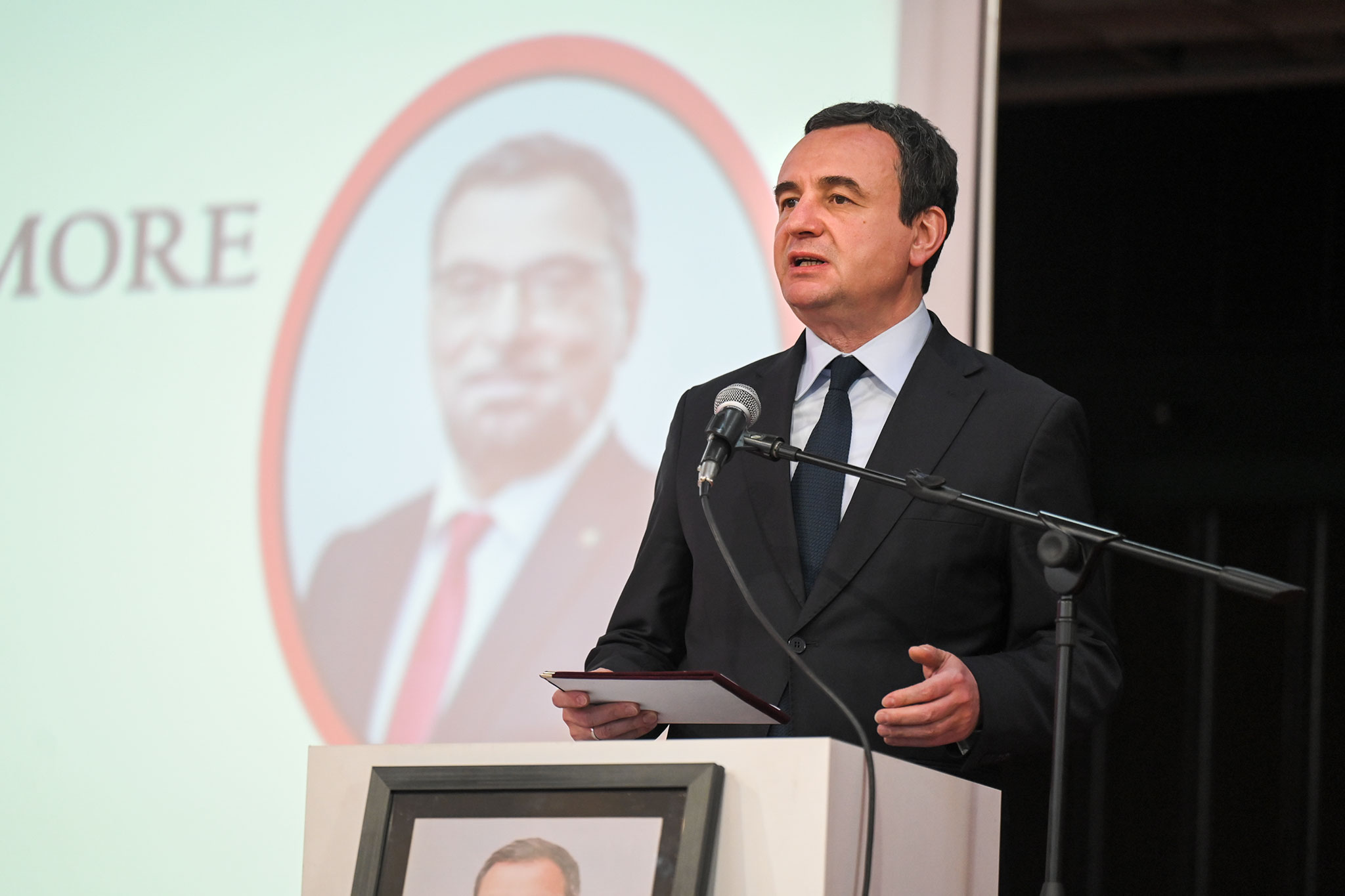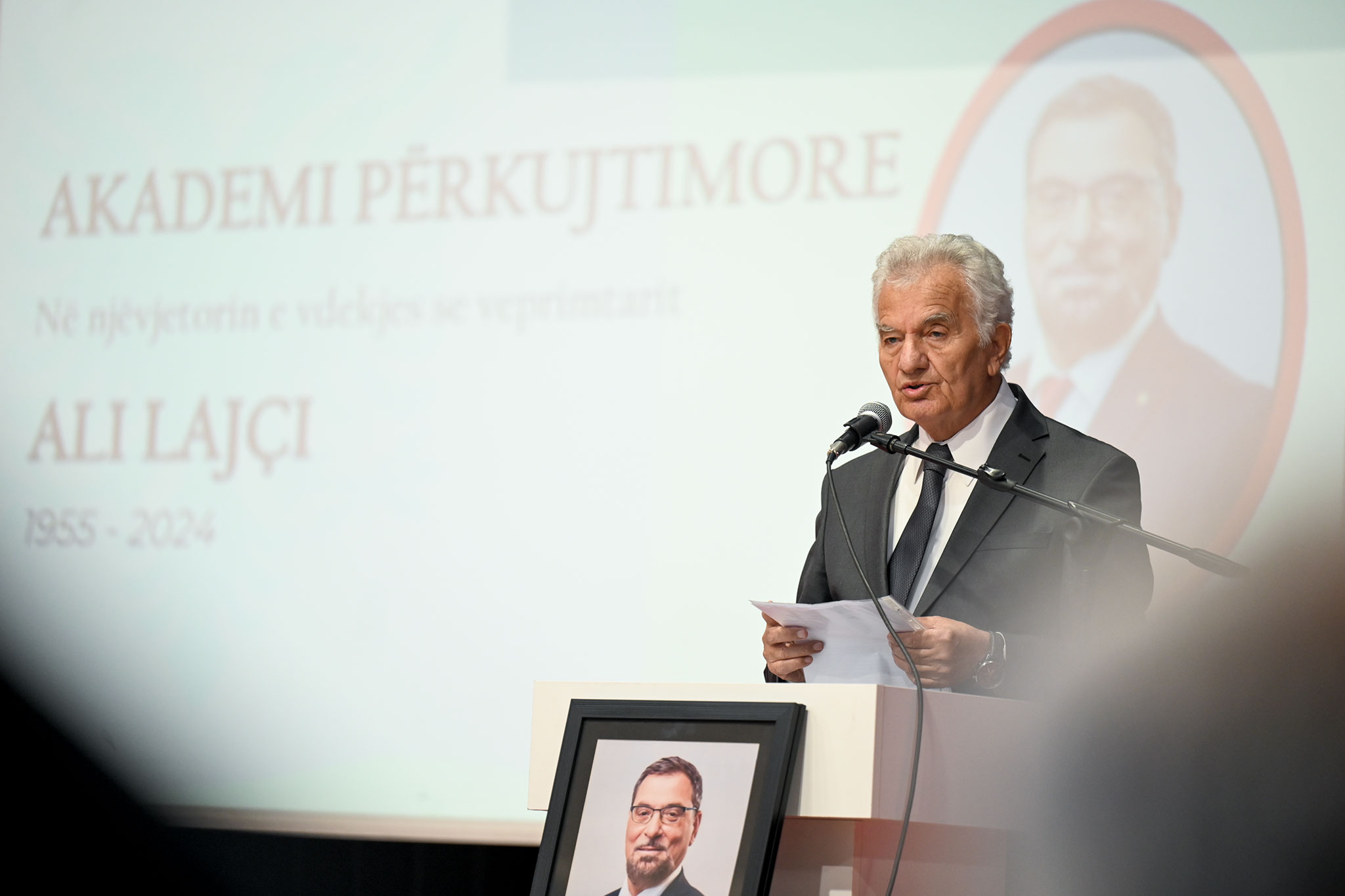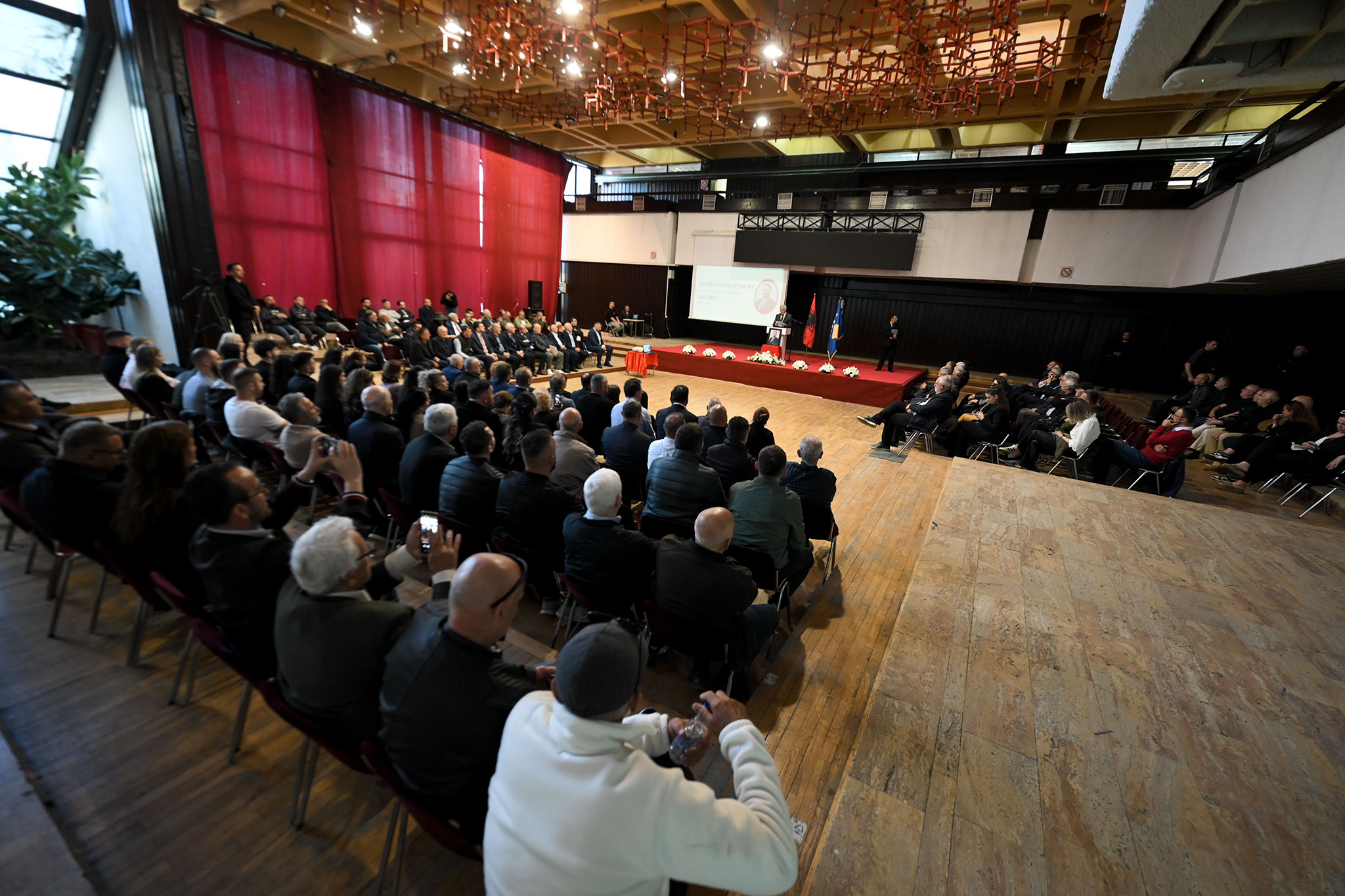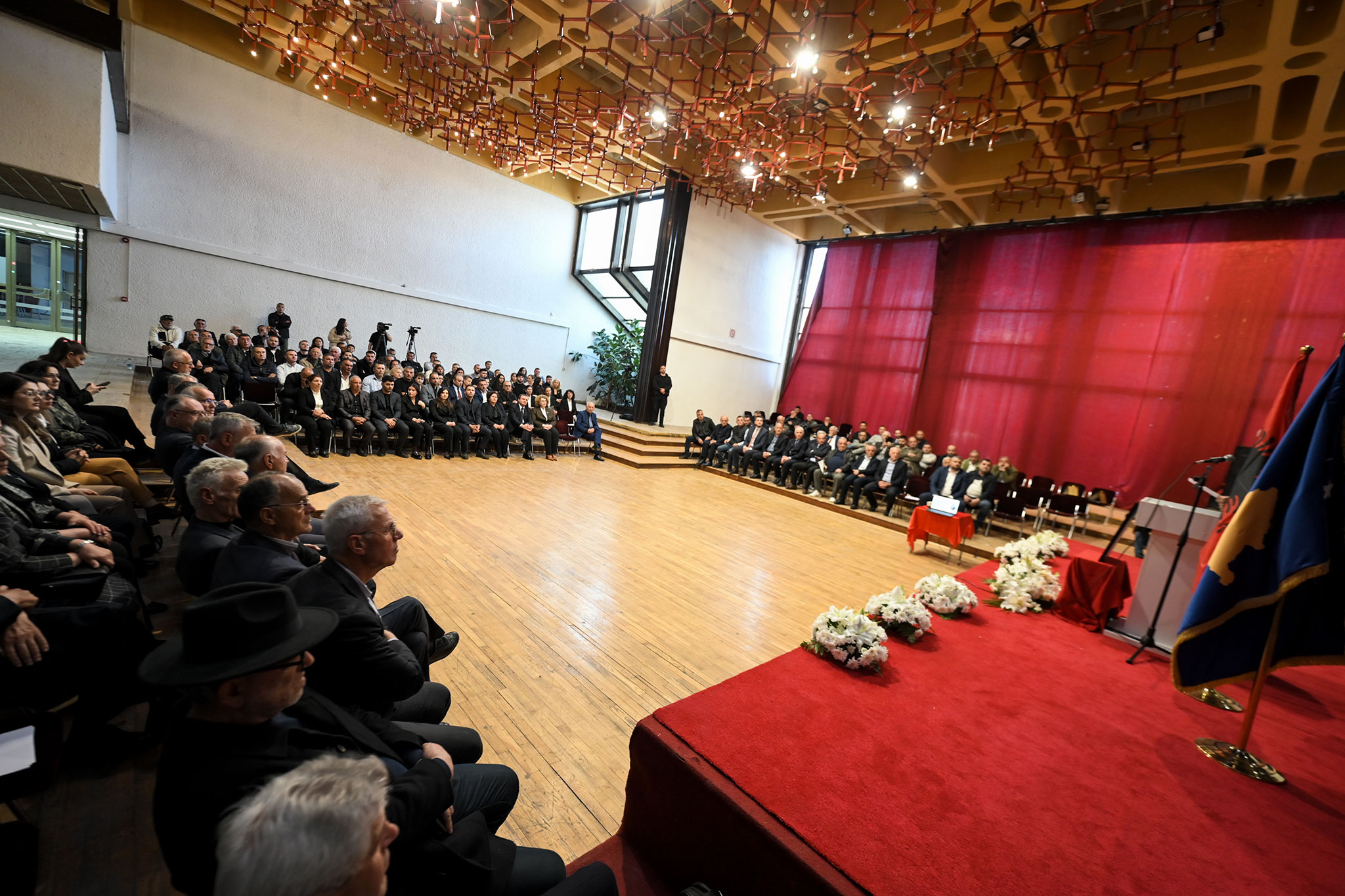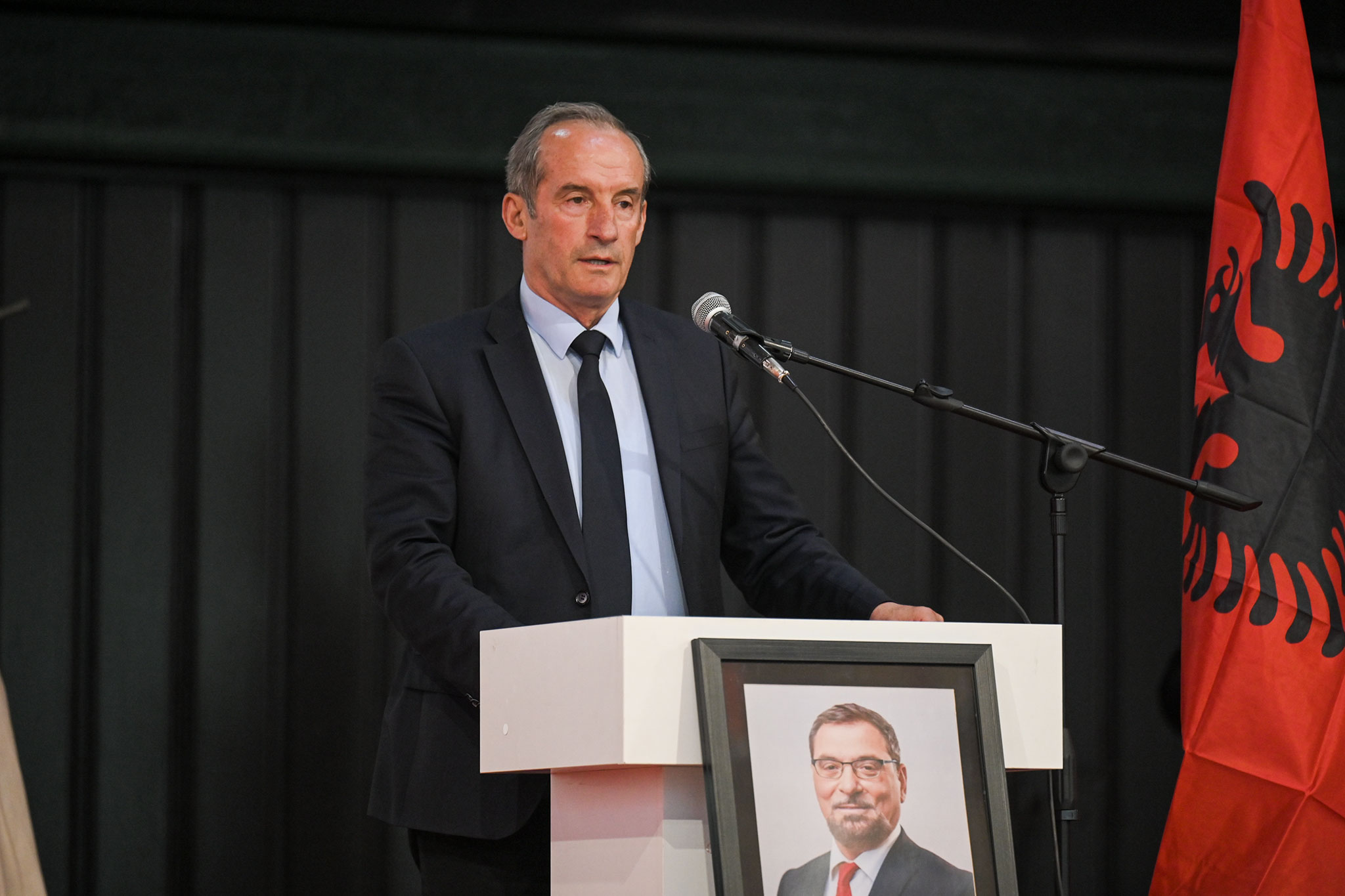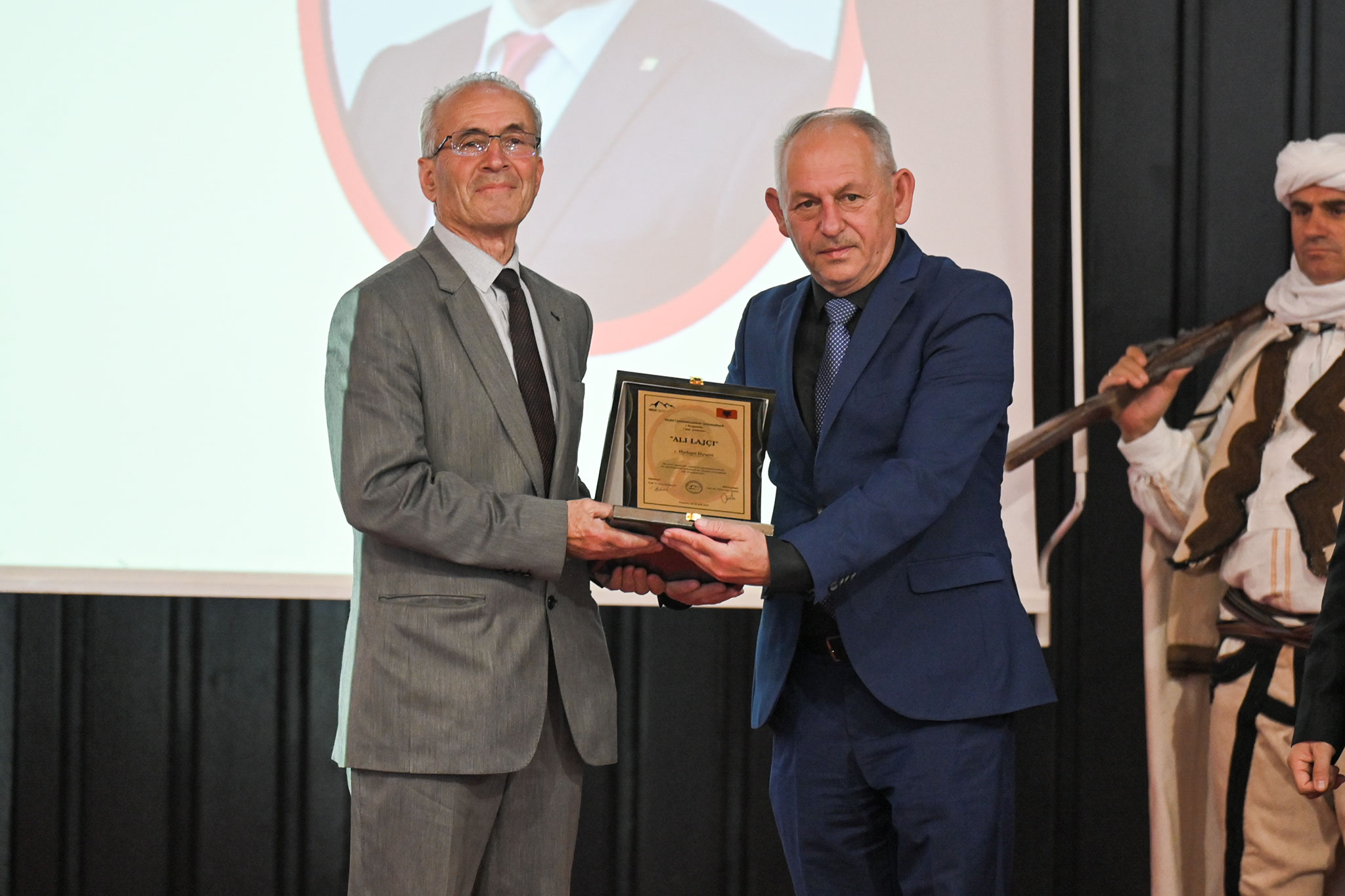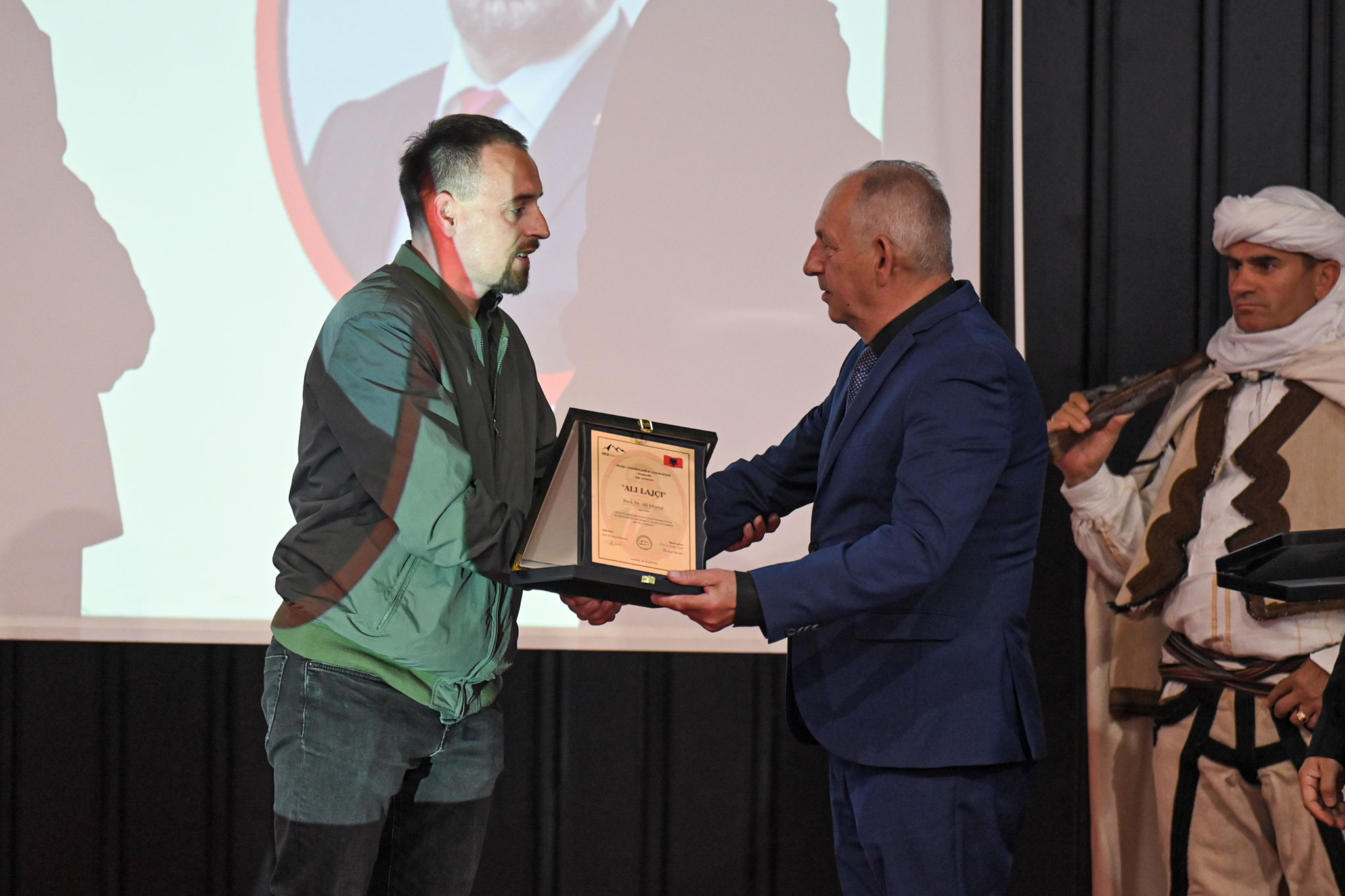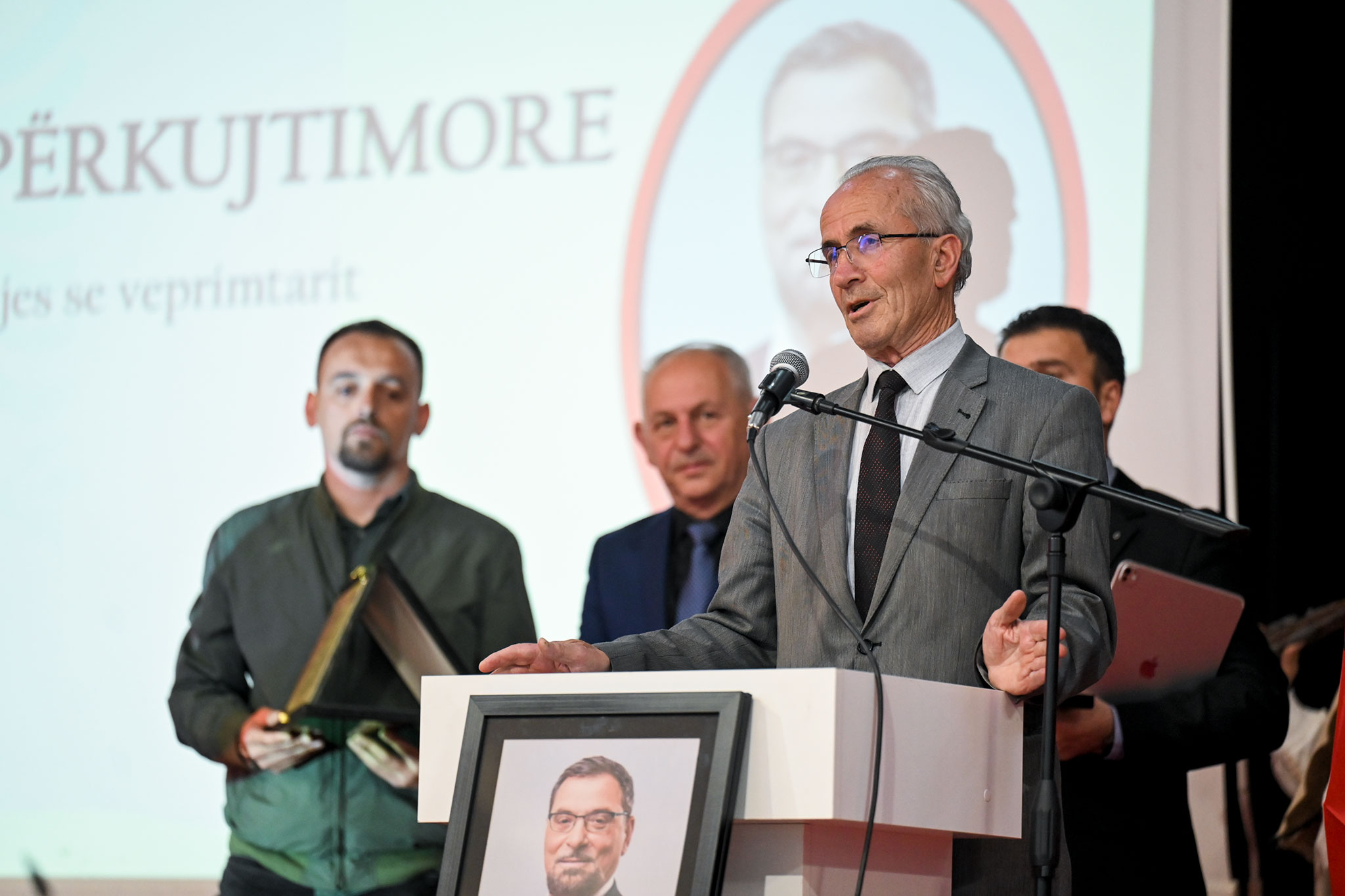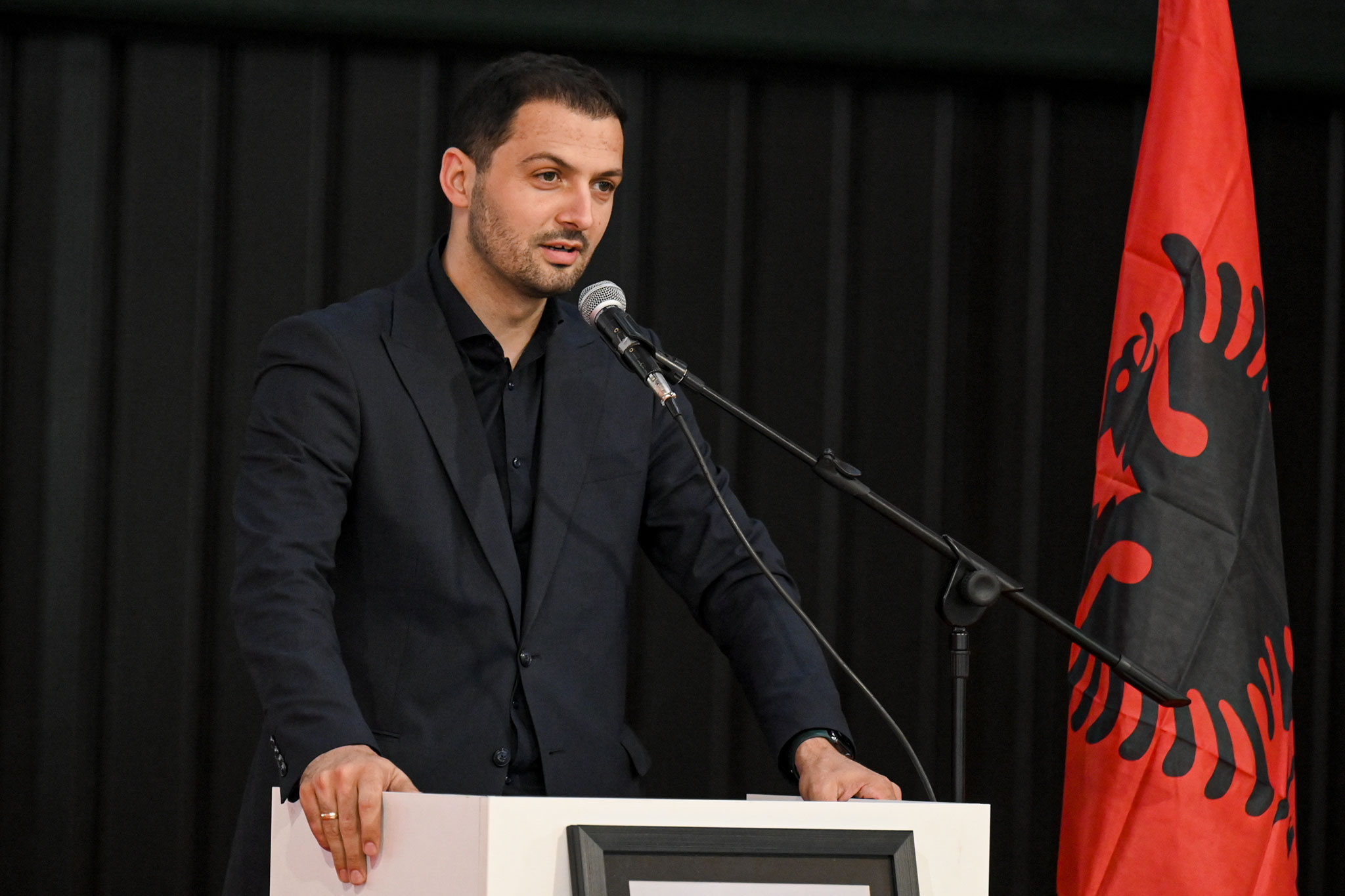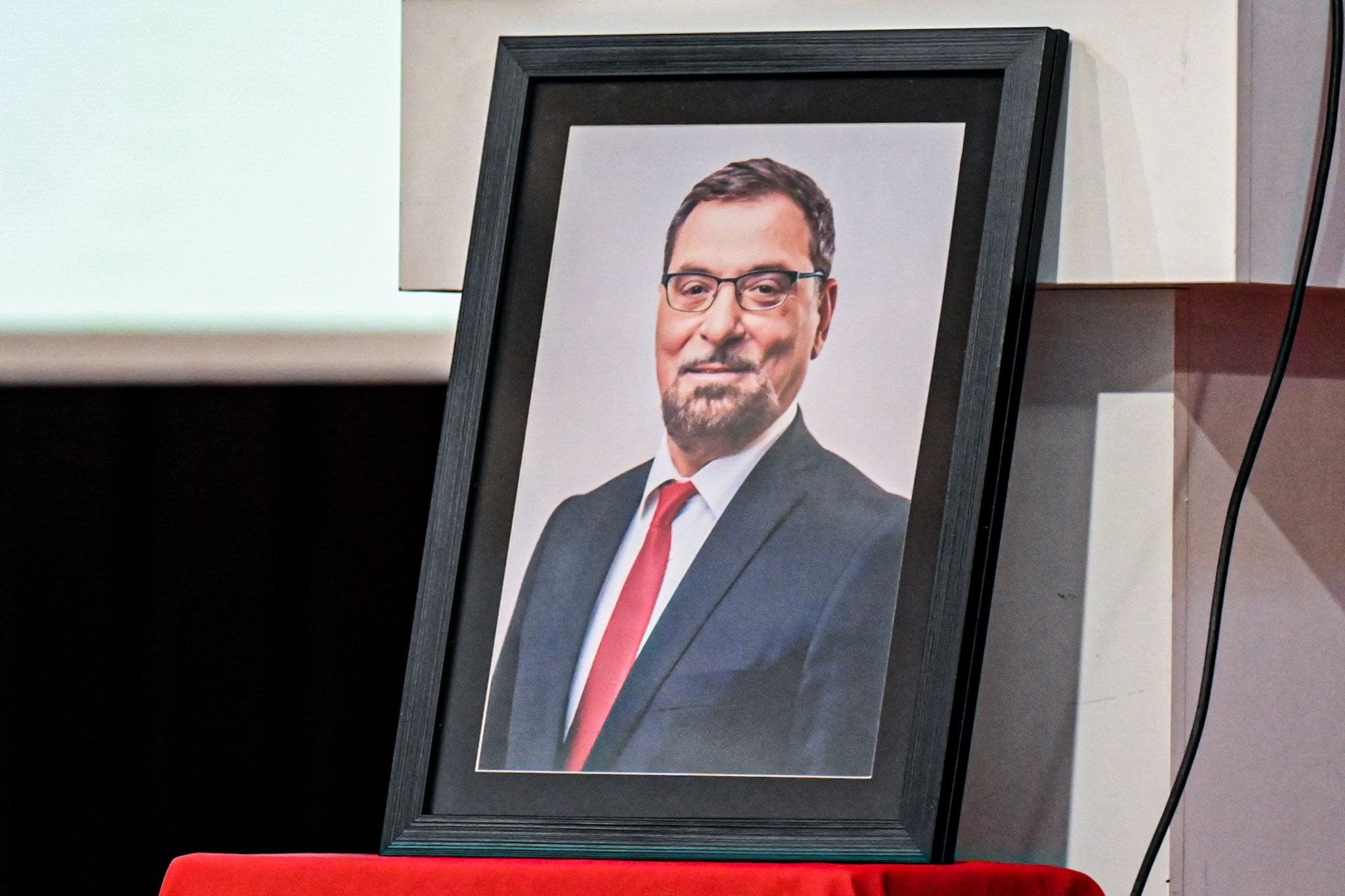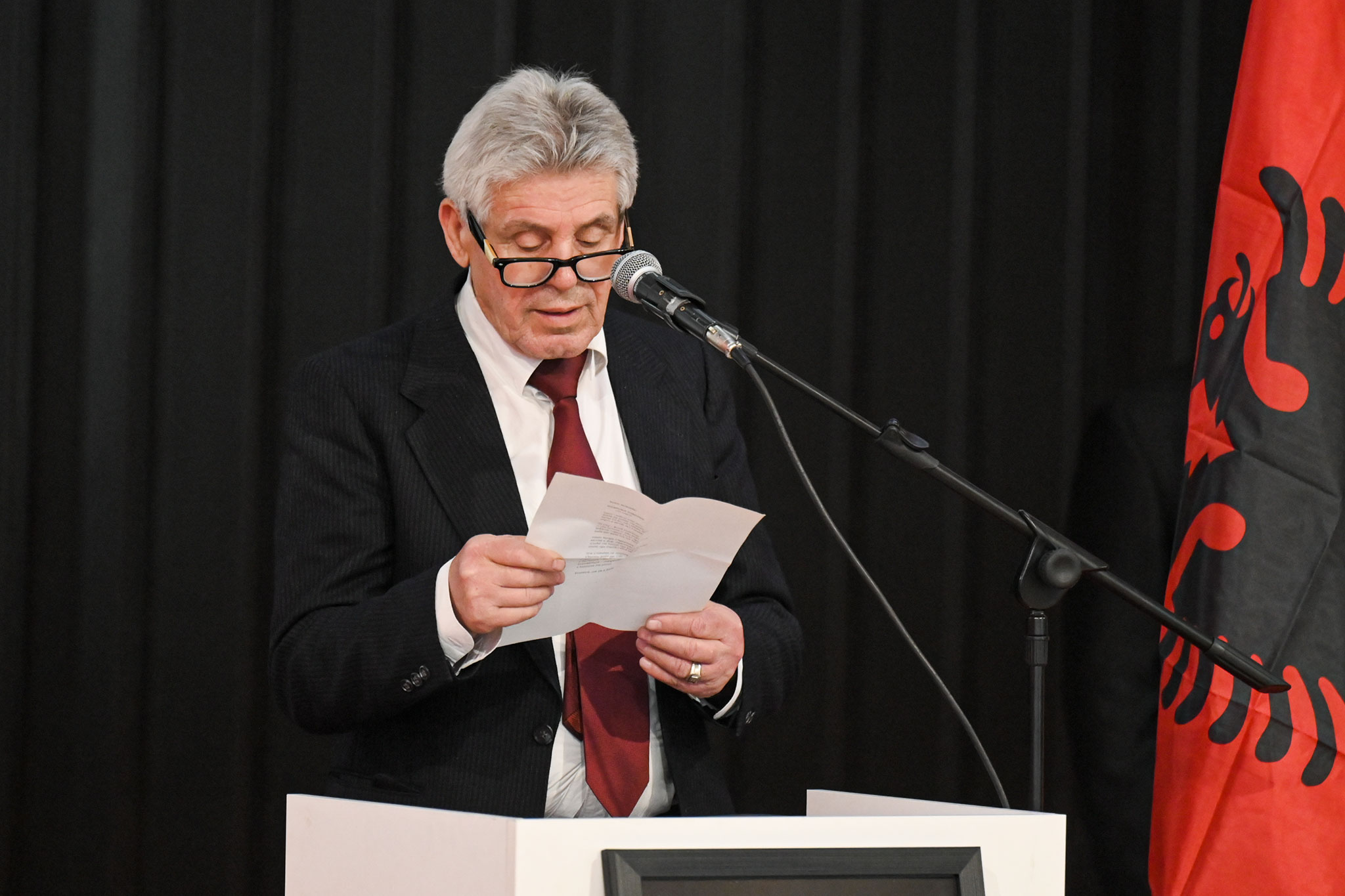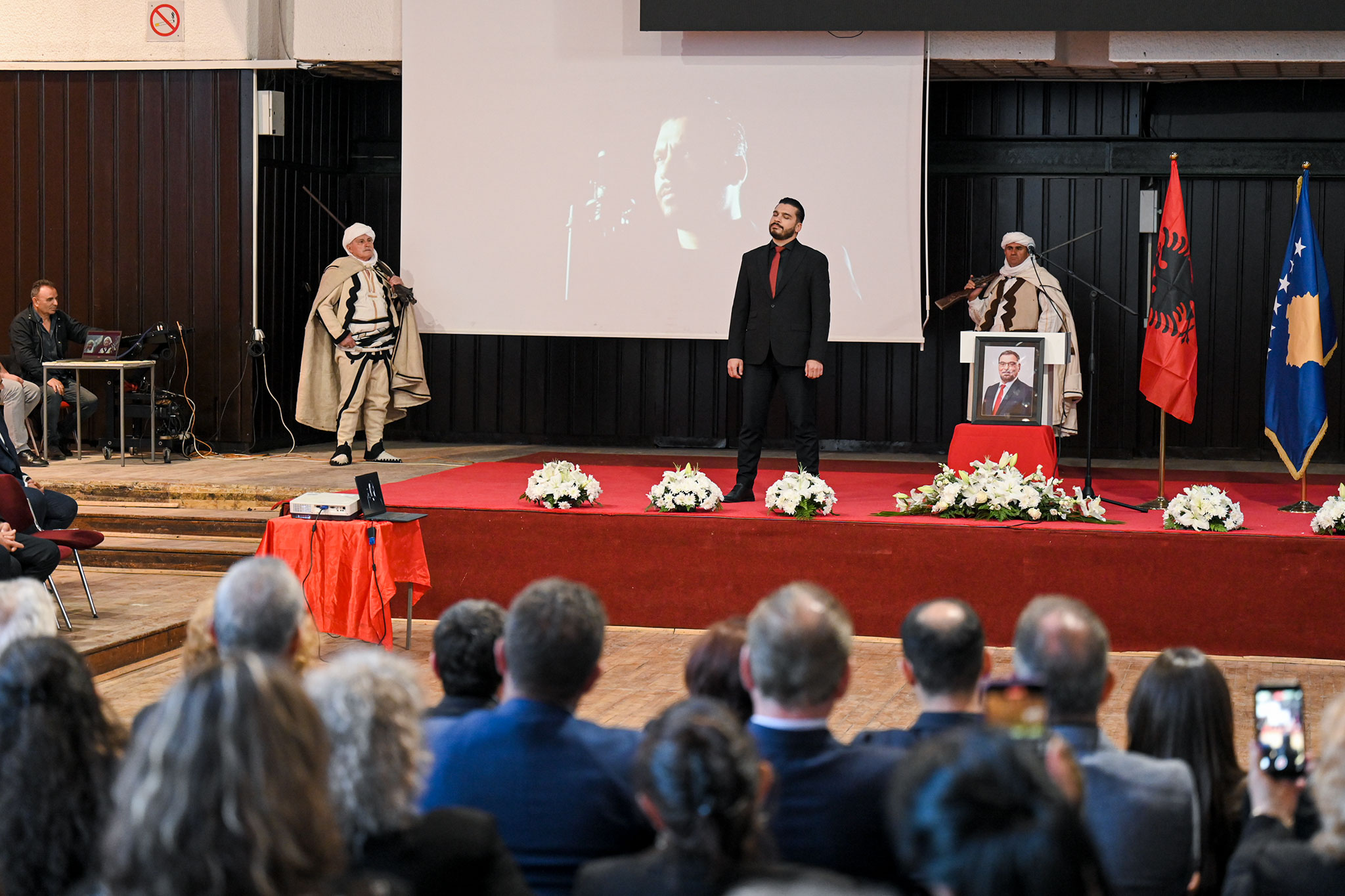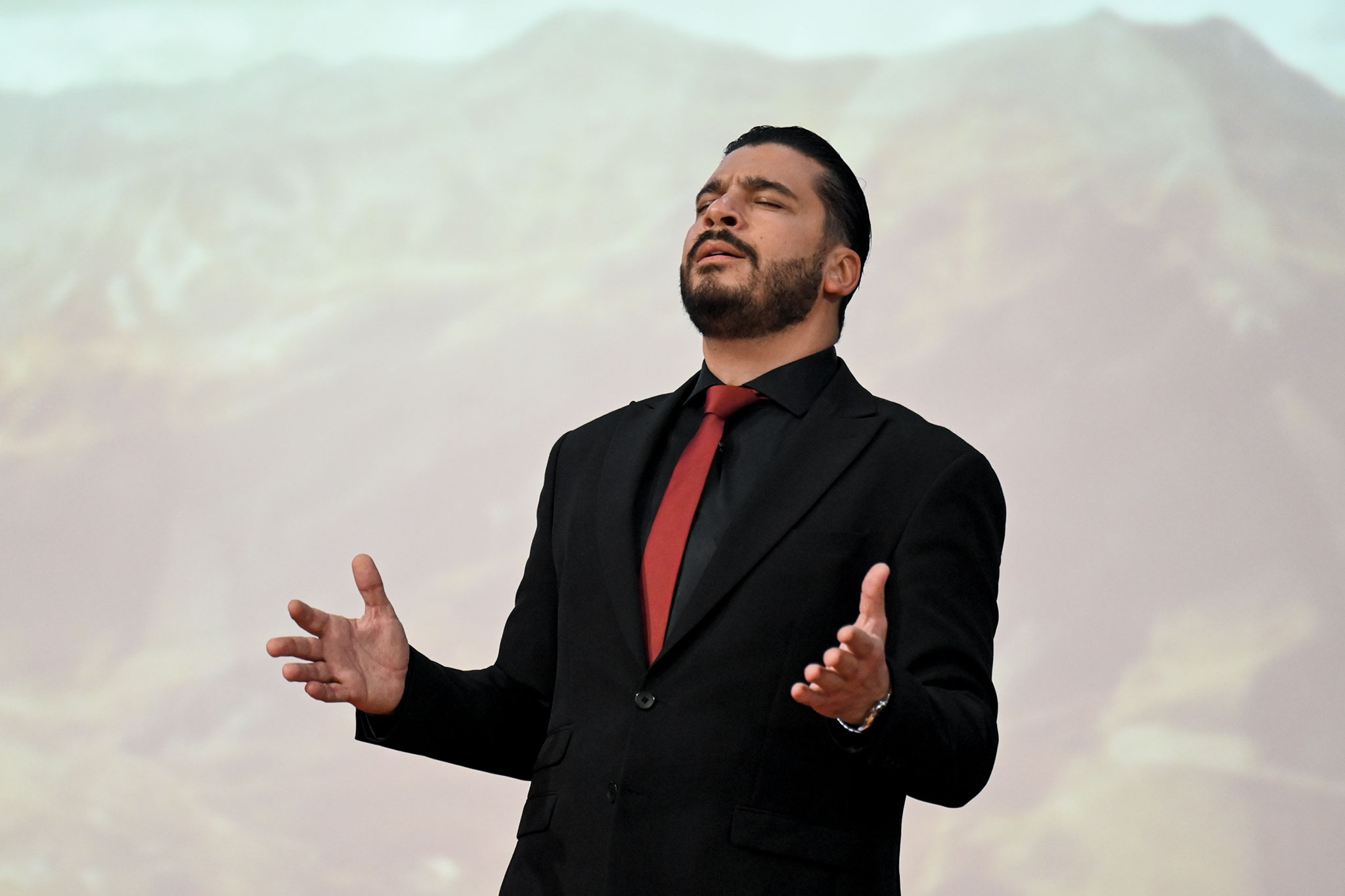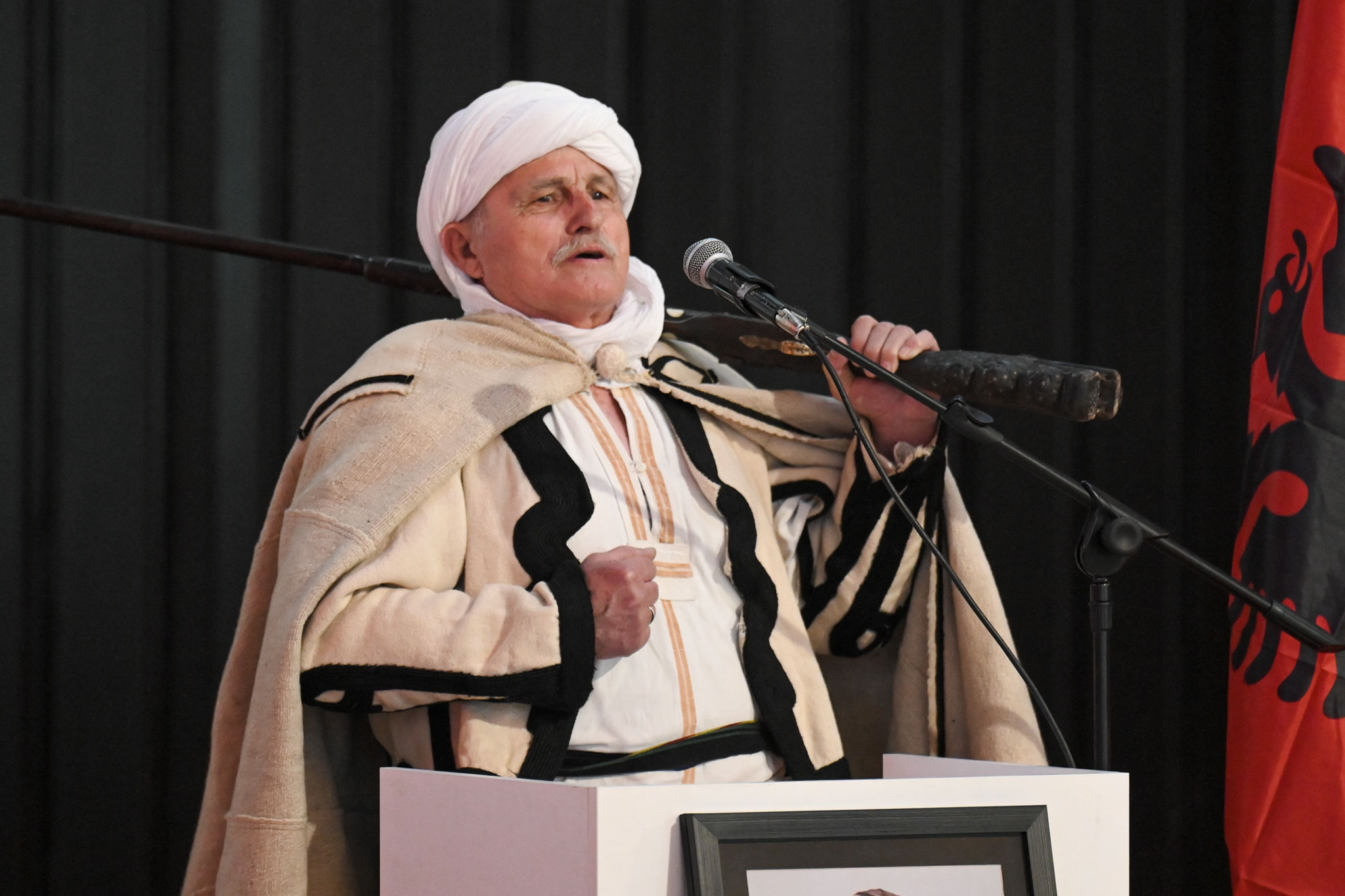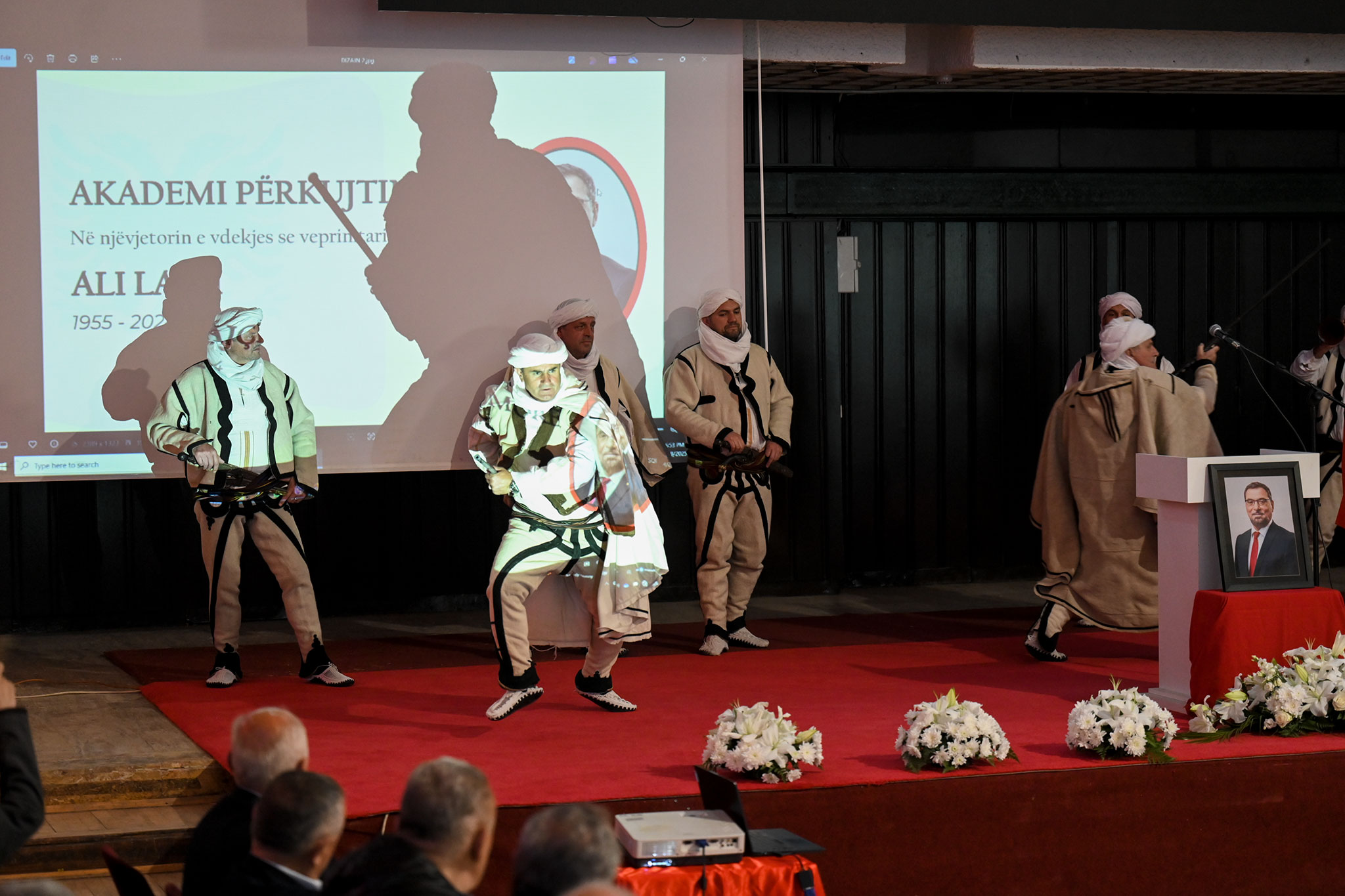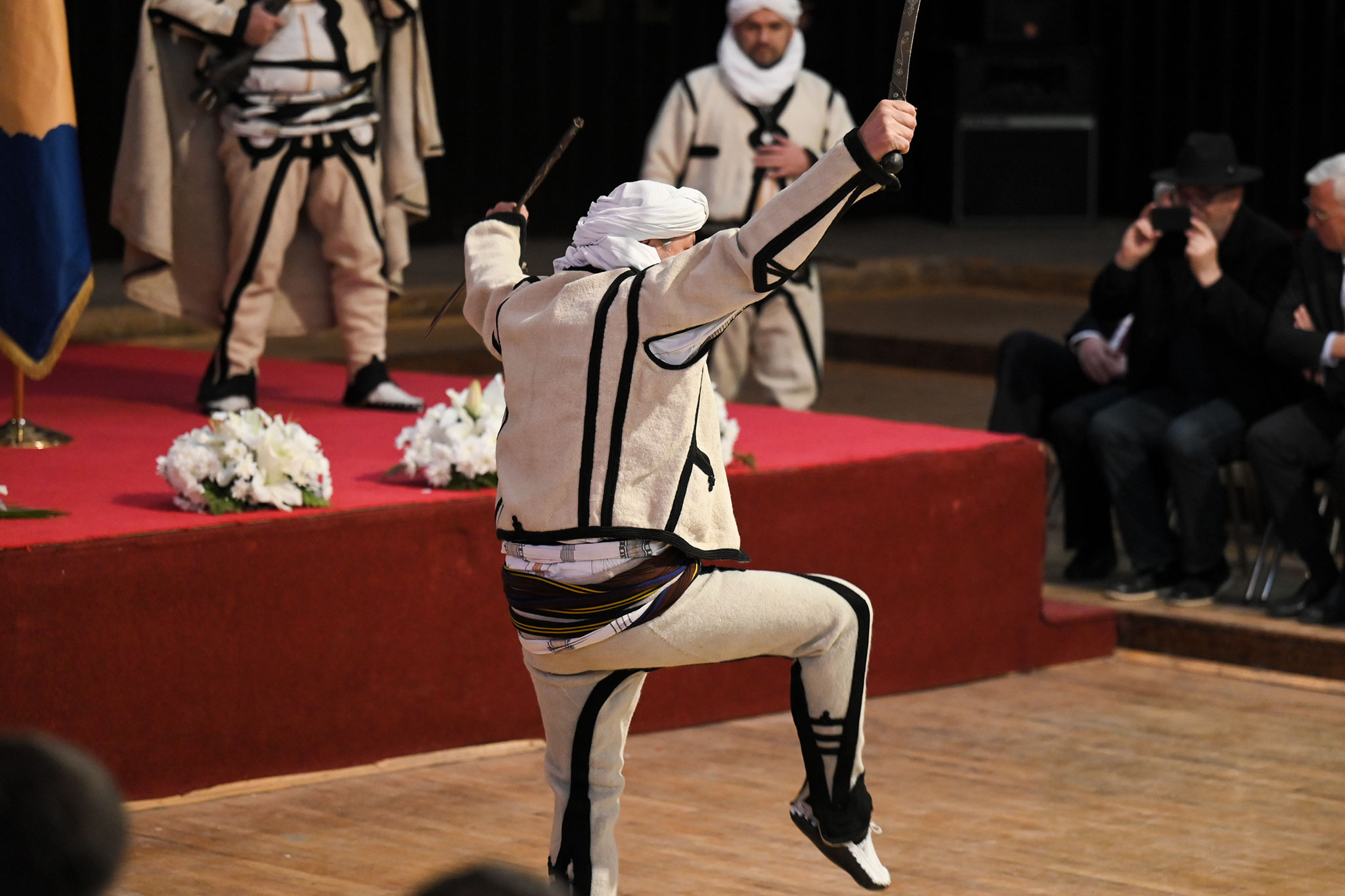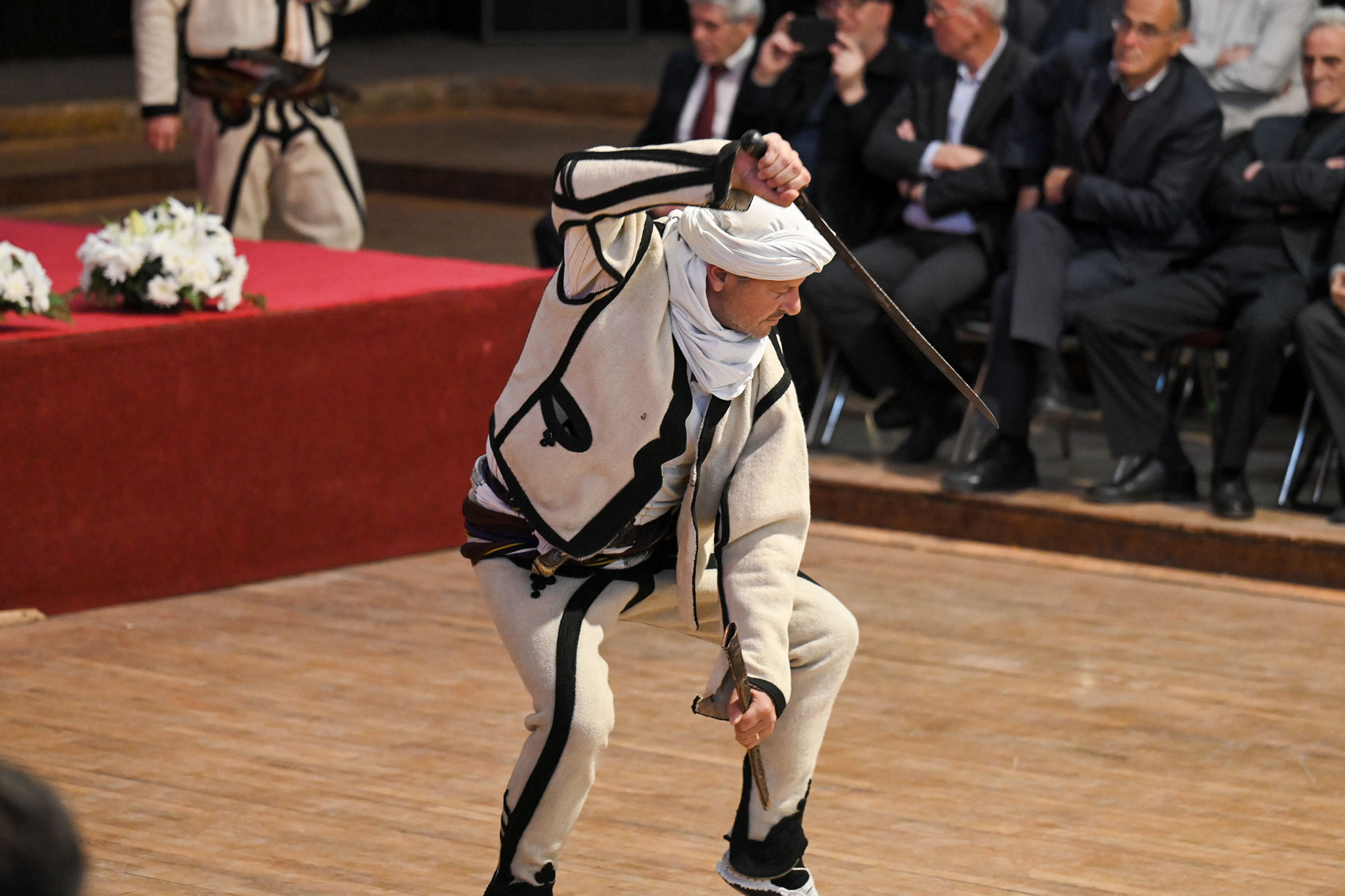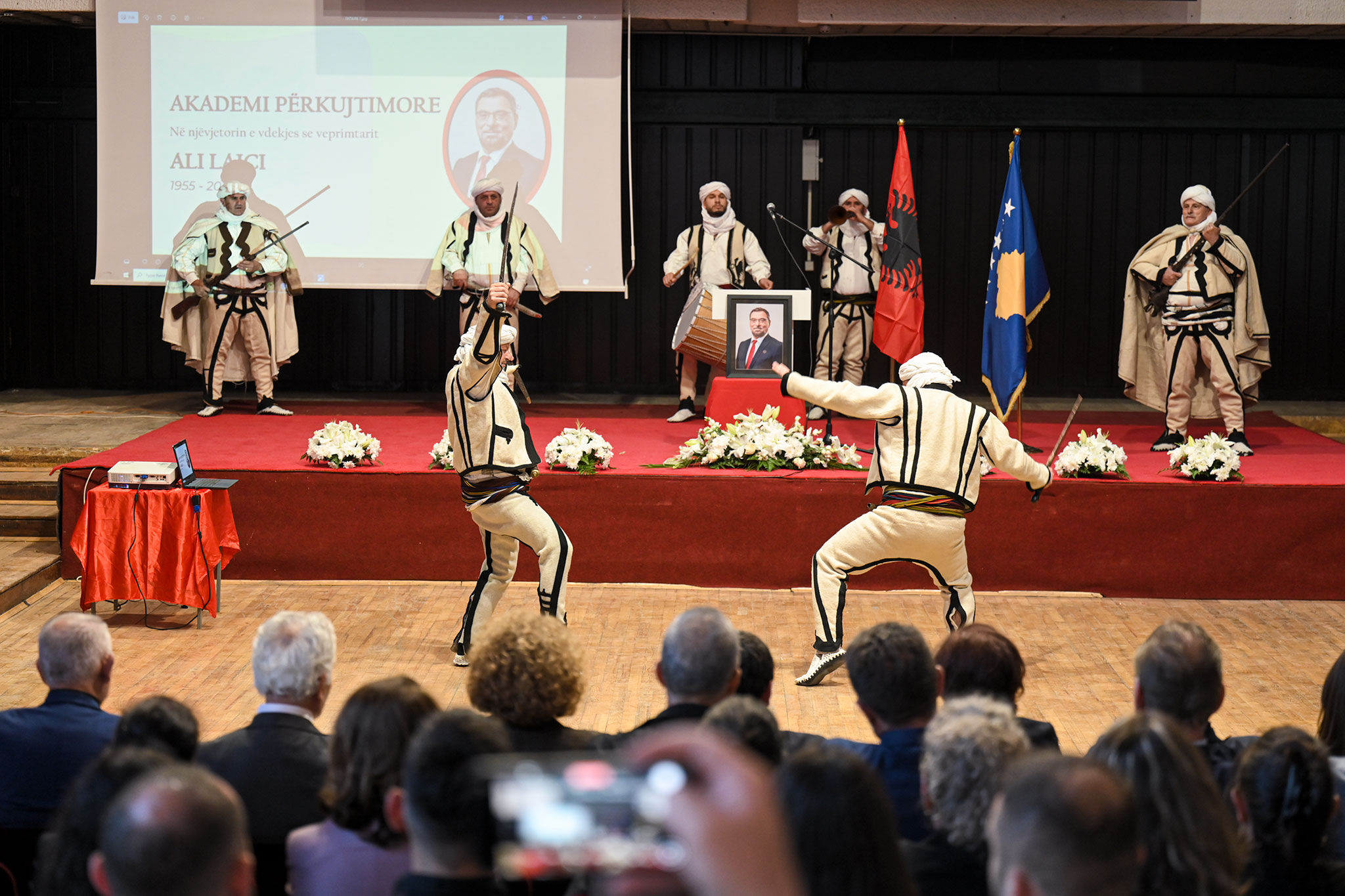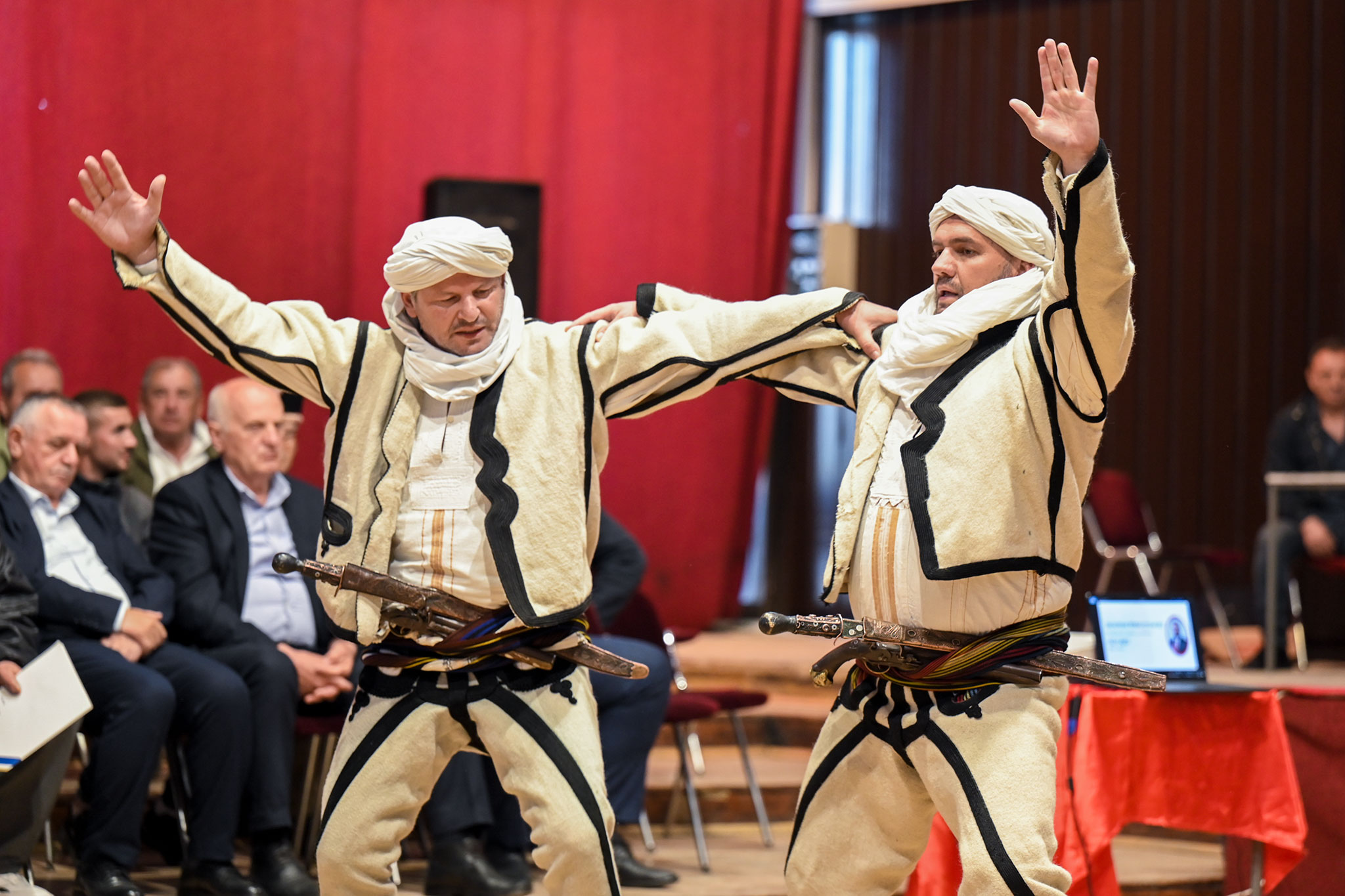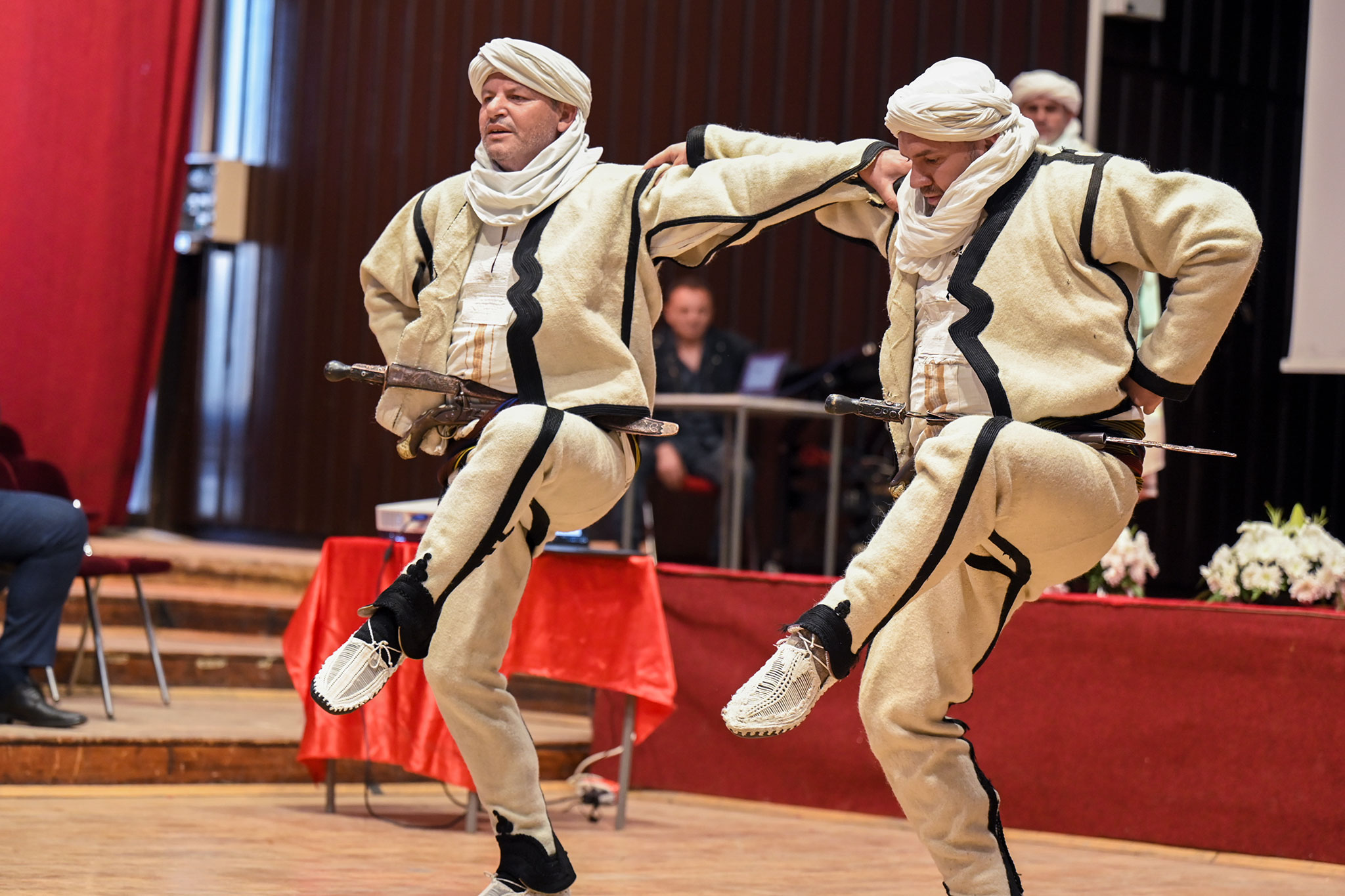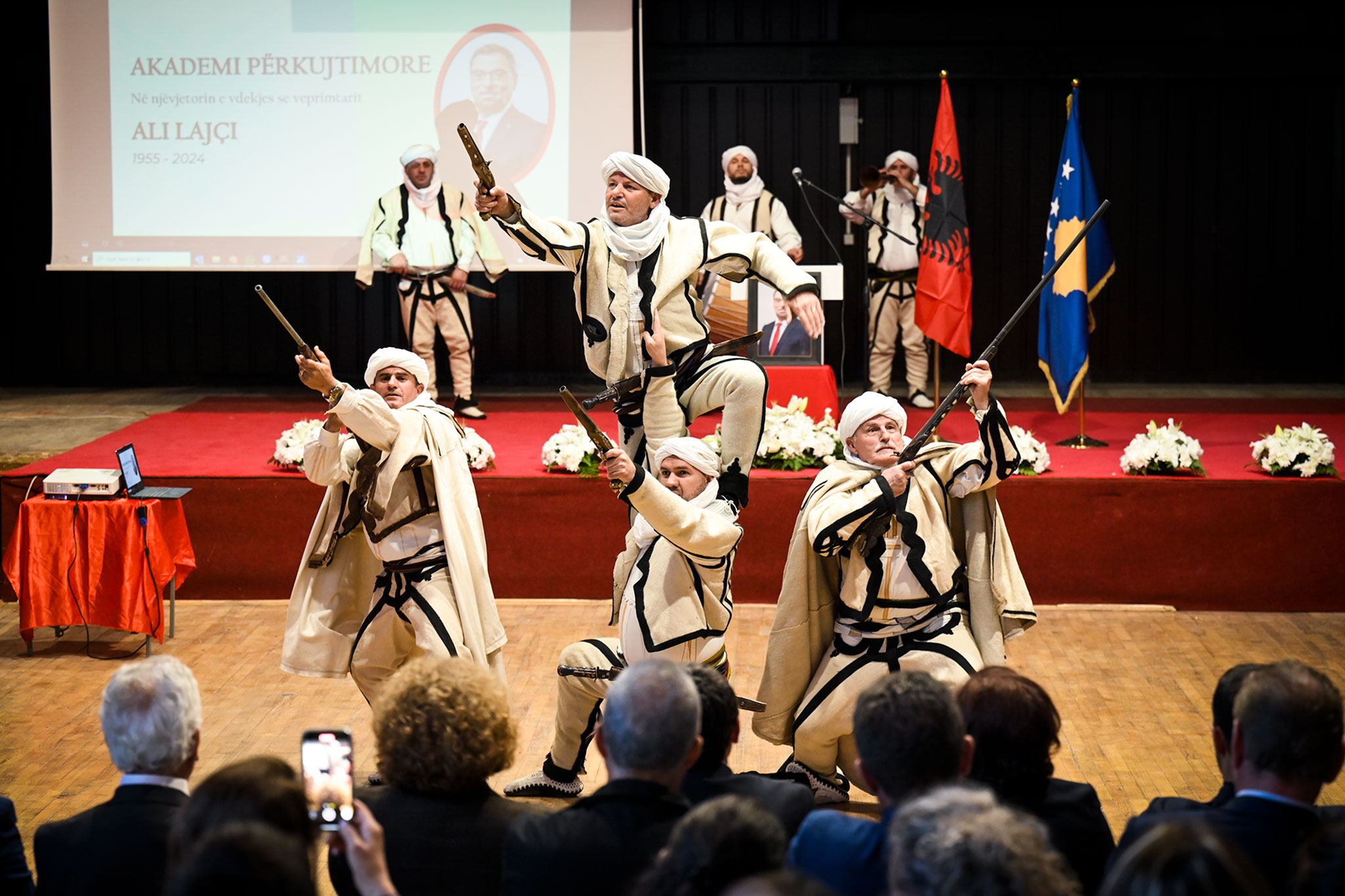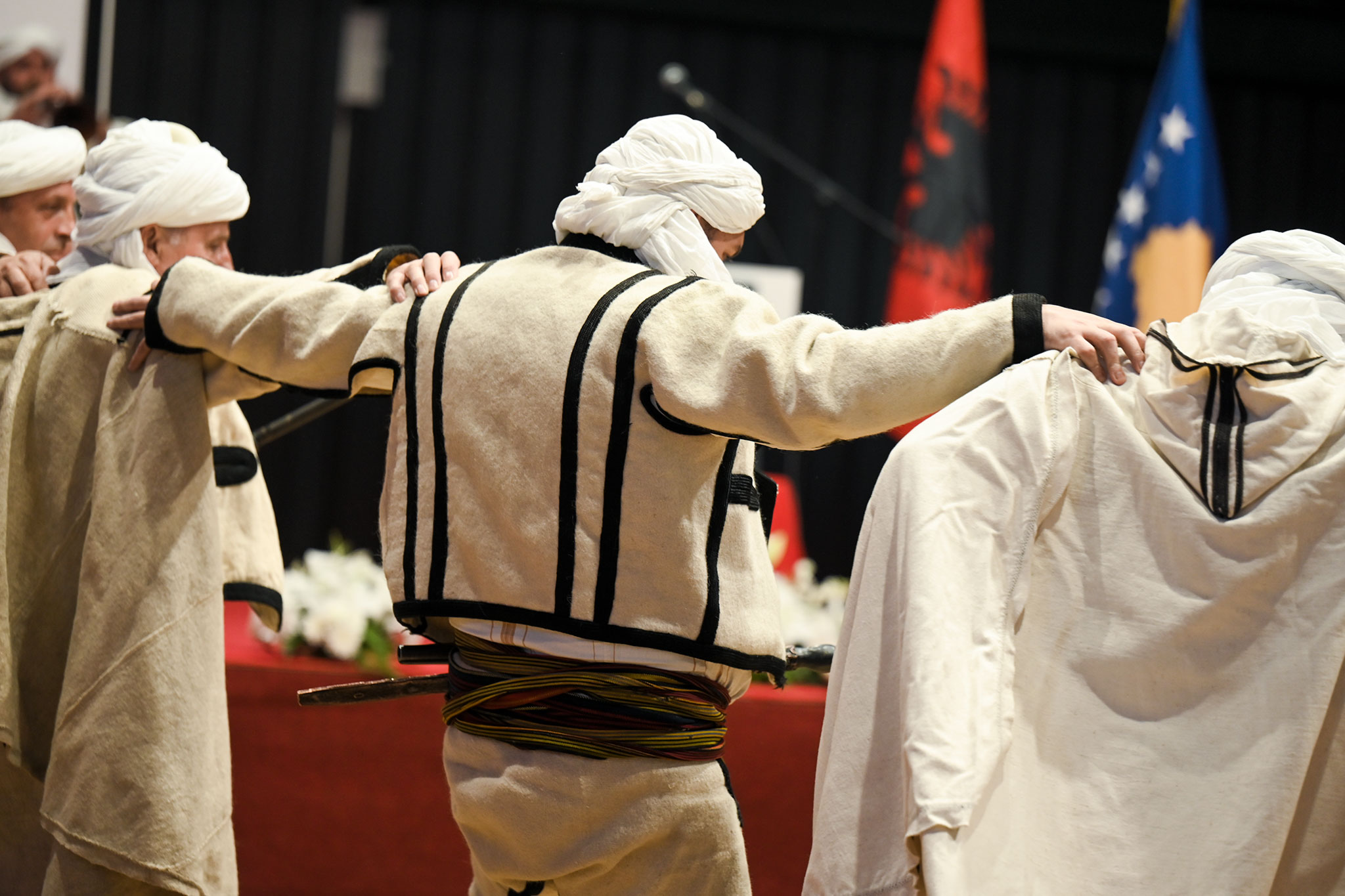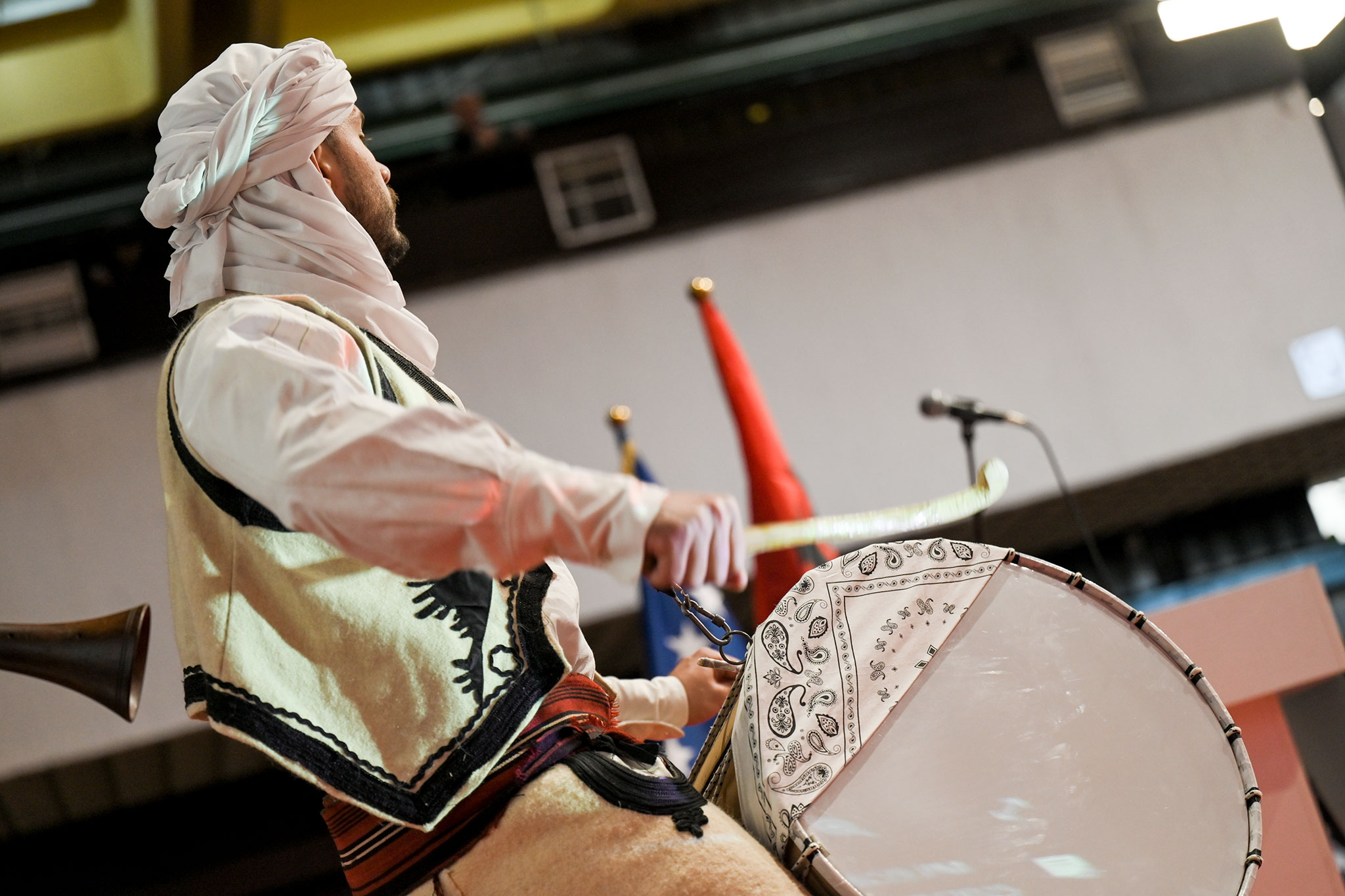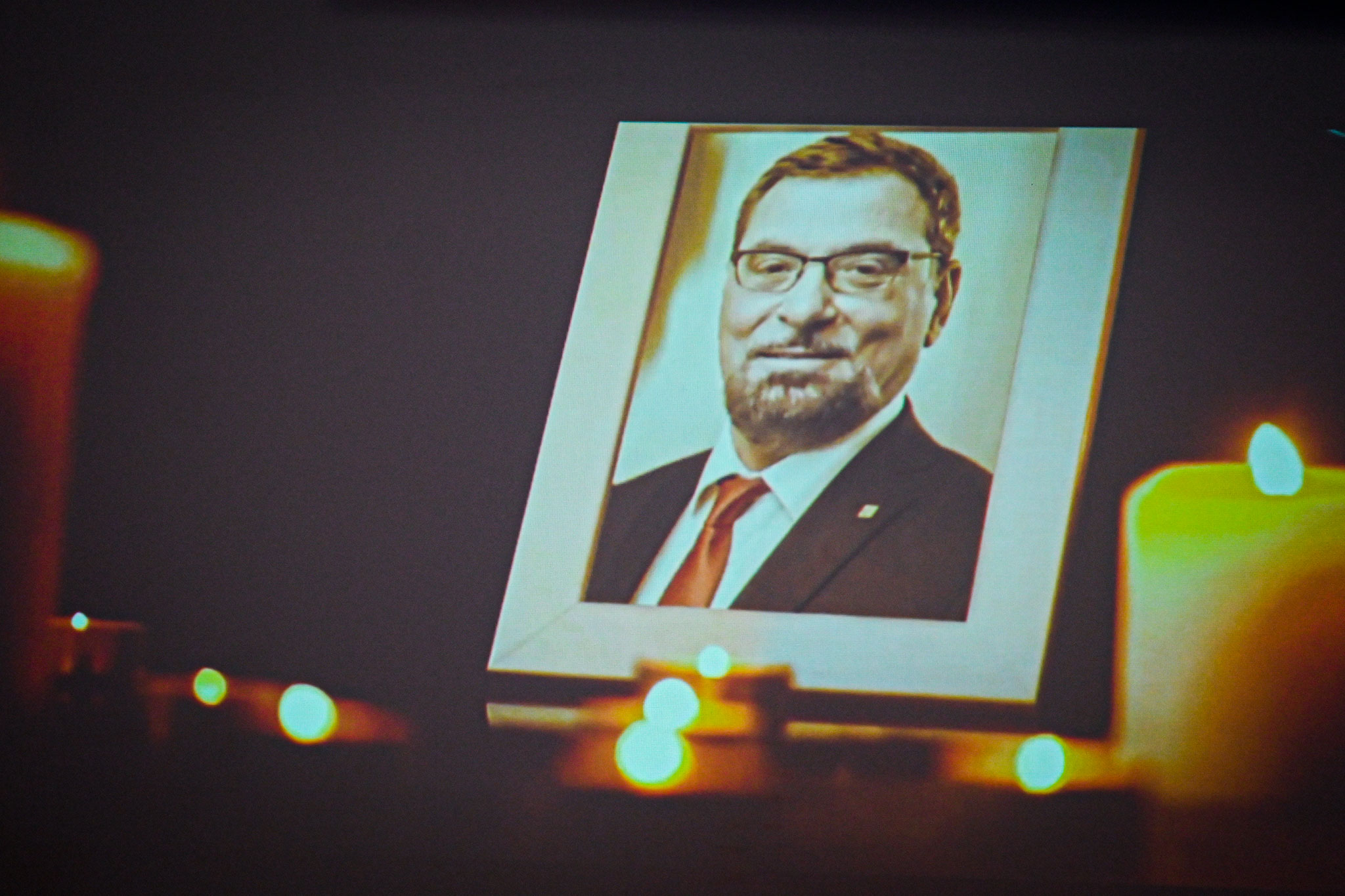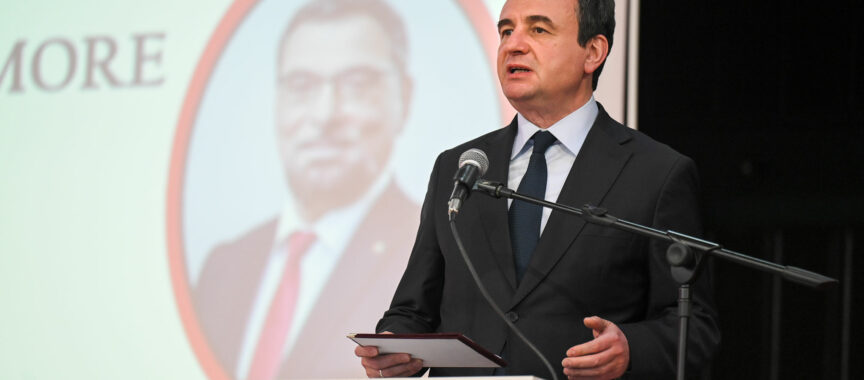Prishtina, April 28, 2025
The acting Prime Minister of the Republic of Kosovo, Albin Kurti, participated in the memorial ceremony in honor of the activist and former member of the Assembly of the Republic of Kosovo, Ali Lajçi.
In his opening remarks, the Prime Minister said “It has been one year since the death of Ali Lajçi, the Albanian activist and active politician who left us on April 28, 2024. In the modern political history of Kosovo, there is a generation of political activists who are commonly referred to as the Generation of ’81, and who have had the good fortune to be politically engaged in three periods so different from each other.”
These periods include the decade of the 1980s with demonstrations and political slogans and tracts followed by years of political imprisonment, the decade of the 1990s with the organization of peaceful resistance and then armed resistance until the liberation war of the KLA, and the two decades of the 21st century, when independence was declared and the republic was established.
“It was precisely in the demonstrations of 1981 that Ali Lajçi stood out as a political activist, for which he was sentenced to 15 years in prison, of which he served 10. During his imprisonment, on March 8, 1985, Ali Lajçi was one of five prisoners who drafted and signed the long letter titled “The events in Kosovo are not a counter-revolution,” said Prime Minister Kurti.
The letter signed by Ali Lajçi together with Hydajet Hyseni, Zijah Shemsi, Bajram Kosumi and Gani Koci, sent from the central prison in Belgrade, was described by the Prime Minister as a letter that can be read almost as an emblematic treatise of the time, the most important written political testament of the generation of ‘81.
“A full 23 years after they had signed this letter, four of the prisoners would go on to sign the Declaration of Independence as well. From one signature to the next, there are 23 years between them, all of which were filled with political activism for freedom and state-building.”
Prime Minister Kurti also covered the life and political activity of Ali Lajçi as Mayor of Peja Municipality between 2001 and 2007, after which he was elected as a deputy in the Assembly of Kosovo in several legislatures. Recalling his cooperation with him as deputies of the SELF- DETERMINATION Movement in the Assembly of the Republic, the Prime Minister said that “The long and rich experience of his political engagement was very evident in him, and very useful for us who had him as an associate even beyond being colleagues in state institutions. This feeling has accompanied every meeting and communication I had with him, always from then until the end, for which I am eternally grateful and thankful.”
During his speech, Prime Minister Kurti also recalled that May 5 — a week from today — will mark the 40th anniversary of Zija Shemsiu’s killing in prison.
Full speech of Prime Minister Kurti:
Honorable Ms. Fiqerie, dear Ngadhnjim, Arbëresha and Gent,
Honorable family members of Ali Lajçi,
Honorable Professor Jeton Kelmendi, Zymer Neziri and Hydajet Hyseni,
Honorable fellow proponents, colleagues, friends of Bacë Ali,
Honorable activists and former political prisoners of all generations,
Honorable attendees,
Ladies and gentlemen,
Sisters and brothers,
It has been one year since the death of Ali Lajçi, the Albanian activist, the active politician who left us on April 28, 2024. In the modern political history of Kosovo, there is a generation of political activists who are commonly referred to as the Generation of ’81, and who have had the good fortune to be politically engaged in three periods so different from each other.
Specifically, they were engaged in the decade of the 80s with demonstrations and political slogans and tracts followed by many years of political imprisonment, in the decade of the 90s with the organization of peaceful resistance and then armed resistance until the liberation war of the KLA, and in the two decades of the 21st century, when independence was declared and the republic was established.
Ali Lajçi belonged to this generation, whose history extends into three periods. Born in Malaj, Rugova, 70 years ago, on January 3, 1955, Ali Lajçi has been politically active throughout his life. There is a well-known photo taken by the then Yugoslav security authorities, on March 26, 1981, in the center of Pristina, where thousands of students are seen demonstrating and among them, in that photo, in the front row is Ali Lajçi, in a black suit and with a beard.
It was precisely during the 1981 demonstrations that Ali Lajçi became known as a political activist, for which he was sentenced to 15 years in prison, of which he served 10. During his imprisonment, on March 8, 1985, Ali Lajçi was one of five prisoners who drafted and signed the long letter titled “The Events in Kosovo Are Not a Counter-Revolution”.
Through this letter, Ali Lajçi, together with Hydajet Hyseni, Zijah Shemsi, Bajram Kosumi and Gani Koci, addressed the then Presidency of Yugoslavia from the central prison in Belgrade. This long letter, which can be read almost as an emblematic treatise of the time, is the most important written political testament of the generation of ’81. A full 23 years after signing this letter, four of the prisoners would also sign the Declaration of Independence. From one signature to the next there are 23 years between, all of which were filled with political activism for freedom and state-building. On this occasion, let us remember that May 5 — a week from today — marks 40 years since the fall of Zija Shemsiu and his murder in prison.
After the war, Ali Lajçi was Mayor of the Municipality of Peja between 2001 and 2007, and after that he was elected a deputy in the Assembly of Kosovo in several legislatures. I met and cooperated with Ali Lajçi when he joined us as a deputy of the SELF- DETERMINATION Movement in the Assembly of the Republic, but the long and rich experience of his political engagement was very evident in him, and very useful for us who had him as a cooperator even beyond being colleagues in state institutions. This feeling has accompanied every meeting and communication I have had with him, from then until the end, for which I am eternally grateful and thankful.
With gratitude and honors may Ali Lajçi be remembered, among his friends and colleagues of the Albanian national cause in the political history of Kosovo.
Thank you.
Last modified: April 29, 2025
